Appendix G(2)
Ephemera (2000-)
4/30/2022: I’ve found myself needing to split this appendix into two parts as it was getting too large for WordPress to handle properly. This is the second half which contains items from 2000 through today. Items from 1999 and earlier can be found in part 1.
- Buffy the Vampire Slayer: Resurrecting Ravana by Ray Garton
Pocket, 2000
Page 104: “‘It wouldn’t surprise me. Del and I are both avid readers. He doesn’t like my spooky books by Stephen King and Dean Koontz but he’ll go through several detective novels a week.’”  About the Author by Alfred and Emily Glossbrenner
About the Author by Alfred and Emily Glossbrenner
Harcourt, 2000
Pages 130-131 contain a bio, photo and brief bibliography of Dean.- Julie Christie: The Biography by Tim Ewbank & Stafford Hildred
Andre Deutsch Ltd (UK), May 2, 2000
p205: “In 1977 Christie surprised her fans by agreeing to star in Demon Seed, as a scientist’s wife who is raped by a super computer. Based on a Dean Koontz novel and directed by the off-beat Donald Cammell, who co-directed Performance, with Nicholas Roeg, this was not a success. Publicity concentrated on the ludicrous and deeply unbelievable mechanical assault on Julie Christie and the film was received like a bad joke.” - “Spain Teens Tell Why They Killed”
Associated Press – May 30 2000
”El Pais said that at the home of the two girls, police found books of horror stories by Stephen King and Dean Koontz…” - “Flirting With Danger: Female Writers Take Aim at the Thriller Genre” by Vicky Uhland
Denver Rocky Mountain News, Jul 30 2000, Books section
”In contrast, thriller/horror superstar Dean Koontz has sold more than 200 million copies of more than 30 books.” - The Lust Lizard of Melancholy Cove by Christopher Moore
Avon Trade Paperbacks, August 2000
On the back cover:
”If Dean Koontz had snorted a strange drug that contained the essence of Carl Hiaasen, Neal Barrett, Jr., Daniel Pinkwater, Joe Lansdale, and William Kotzwinkle, he might have been able to write Moore’s latest Novel.” – Rocky Mountain News - Black Evening by David Morell
Warner Books, 2000, p85
In the introduction to “A Trap for the Unwary”
”Dennis Etchison is both a gifted fiction writer and a respected editor of short-stoy anthologies. In 1991, he asked me and a number of other contributors – Clive Barker, Stephen King, Dean Koontz, Joyce Carol Oates, and more – to choose a favorite the stories we had written.” - Black Mass: The Irish Mob, the FBI and a Devil’s Deal by Dick Lehr & Gerard O’Neil
Public Affairs, 2000, p312
”Salemme also read a lot – boating magazines, Tom Clancy, and Dean Koontz.” - The Clustered World: How We Live, What We Buy, and What It Means About Who We Are by Michael J. Weiss
Little Brown & Company, 2000, p170
”At the Clifton Library, the hottest books are popular fiction by Stephen King, Dean Koontz, and Danielle Steele.” - Death, Snow, and Missletoe: A Tori Miracle Mystery by Valerie S. Malmont
Dell, 2000, p81
One character says to another: ”’I like Dean Koontz better, though. He’s sort of local. Went to College at Shipp, you know.’” - Getting Your Book Published for Dummies by Sarah Parsons Zackheim
Wiley Publishing, Inc., 2000, p47
”Other major horror writers include Mary Shelly, Roald Dahl, Clive Barker, Peter Straub, Dean Koontz, and Anne Rice.” - The Night Stalker Comapnion: A 25th Anniversary Tribute by Mark Dawidziak
St. Martin’s Press, 2000, p192
”The refurbished Star Wars trilogy set winter box office records in early 1997. Cable’s Sci-Fi channel offers a round-the-clock diet of fantasy, horror, and science fiction. King, Clive Barker, Anne Rice, and Dean Koontz regularly hit the top spot on the best-seller lists. The time seemed right for a Kolchack comeback.” - The Key: How to Write Damn Good Fiction Using the Power of Myth by James M. Frey
St. Martin’s Press, 2000, p100
”Even better, as Dean Koontz says in How to Write Bestselling Fiction (1981), there should be “terrible trouble” right from the start.” - To Die For by Kathy Braidhill
St. Martin’s Press, 2000, p272
”She and Bill shared a love of horror novels and exchanged Dean Koontz books.” - Bliss: Writing to Find Your True Self by Kathrine Ramsland
Walking Stick Press, September 2000
p41-42: “Best-selling suspense author Dean Koontz spent the early part of his career writing just about anything to keep ahead of the bills…He got into flow.” (Four paragraphs on Dean’s early writing routine; specifically mentioning Wacthers.)
p46: “A tennis player might reach an “impossible” ball or, like Koontz, a writer might suddenly break out of concentrated work to the feeling of gliding and just being the vessel through which the words express themselves.” and “The person in flow can perform for hours, as Koontz did, without noticing anything else that might be happening.”
p48: A full paragraph quoting Dean on his writing process for Watchers.
p142: “(It not only affected me, but inspired the best-selling writer Dean Koontz to pen a novel about synchronicity.)”
p173: “Writing the life story of another person, as I did with Anne Rice and Dean Koontz, involves many levels of immersion.” - Bag of Bones by Stephen King
Scribner, 2001, p34
‘”Looks crowded,” he said, meaning the fall lists, meaning specifically the fiction half of the fall lists. “And there are some surprise additions. Dean Koontz—“
‘”I thought he usually published in January,” I said.
‘”He does, but Debra hears this one may be delayed. He wants to add a section or something. Also there’s a Harold Robbins, The Predators—“’ 
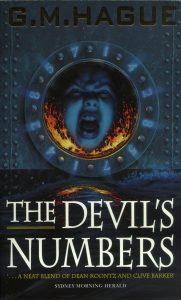 The Devil’s Numbers by G.M. Hague
The Devil’s Numbers by G.M. Hague
Pan Macmillan Australia
“This edition published 2001”
© G.M. Hague 1997
On the cover: “…a neat blend of Dean Koontz and Clive Barker’ Sydney Morning Herald- Mad Magazine, January 2001, p26
”7 Ghastly Side Effects of Stephen King’s E-Books
3) Across the nation, computers are infected with a virus that changes their passwords to ‘Dean Koontz Blows!’” - “What People Earn: A Special Report” by Lynn Brenner
Parade, February 25, 2001, p5
Dean Koontz is pictured along with the caption “Dean Koontz, 55, Author, Newport Beach, Calif., $34 million” - Book Business by Jason Epstein
Norton, 2001
p19: “Such brand-name best-selling authors as… Dean Koontz…”
p33: “But within roughly the same period, sixty-three of the top one hundred best-selling titles were written by a mere six writers… Dean Koontz…” 

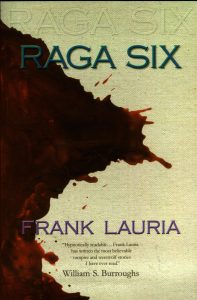 Raga Six by Frank Lauria
Raga Six by Frank Lauria
North Atlantic Books, © 1972, 2001
Back cover: “Lauria has cited H.P. Lovecraft, Stephen King, Dean Koontz, and A. Merritt as influences…”- Jay and Silent Bob Strike Back
Film, 2001
Ben Afleck: “Yeah, but Ben Afleck was the bomb in Phantoms.”
Jay: “Afleck, you were the bomb in Phantoms!” - “!0 Pages a Day” by Stephen King
Writer’s Digest, April 2001
p33: “Several other contemporary novelists (they include Ruth Rendell/Barbara Vine, Evan Hunter/Ed McBain, Dean Koontz and Joyce Carol Oates) have written as much as I have; some have written a good deal more.” - “The ol’ ‘College’ try; bidders take a ‘Shot’” by Jonathan Bing
Variety, April 3, 2001
”Agent Robert Gottleib, who runs Trident Media Group, says authors like Elizabeth George and Dean Koontz can count on seven figure deals for their book in territories like England and Germany.” 

 Ghost: Investigating the Other Side by Katherine Ramsland
Ghost: Investigating the Other Side by Katherine Ramsland
St. Martin’s Press, © 2001
Includes a short Dean Koontz quote on the cover and a full paragraph on the back about the book.
p128: “I thought about a story I had heard from author Dean Koontz about how he received a call one day warning him to be careful. His number was unlisted, and the voice sounded very much like that of his mother, who had dies years before. He did not know what to think. Nevertheless, he became a bit more vigilant, which turn out to possibly to have saved him. That day his father attempted to kill him with a knife.”- Making the List: A Cultural History of the American Bestseller 1900-1999 by Michael Korda
Barnes & Noble Books, © 2001
p196-197: “1992 brought about much the same results: a fiction list consisting almost entirely of regularly appearing megastars (…Dean R. Koontz…).
p197: “…on a list that otherwise seems totally familiar: …Koontz…”
This book lists the top 15 bestsellers for each of the years the book covers. Koontz is listed in the following years: 1990 (The Bad Place), 1991 (Cold Fire), 1992 (Hideaway), 1993 (Mr. Murder), and1994 (Dark Rivers of the Heart) 
 Vanished by T. J. MacGregor
Vanished by T. J. MacGregor
Pinnacle Books, February 2001
Cover: “In the bestselling tradition of Dean Koontz”- Cable #91
Marvel Comics, May 2001
Cover: “Bob Weinberg is one of the greatest comic book writers of all time.” –Dean Koontz
At least one Web site has also implied that this quote appears on Uncanny X-Men #490 (December 2007). It does not. In fact, that issue isn’t even written by Bob Wineberg. - How Precious Was That While by Piers Anthony
TOR Books, July 2001
p183: “Sometimes they escape by writing the same material, but getting the genre label removed; Dean Koontz’s sales took off when he finally prevailed on his publisher to do that.”
p282: “These were by no means the only writers with whom I interacted; in the course of my career I brushed with most of the figures in the field, and some who are on the fringes, like Stephen King, whose daughter was a fan of mine, and Dean Koontz, with whom I used to battle in the fanzines, before we both got too successful to have time for that sort of thing.”
p288-9: “Once Dean Koontz wrote, commenting on something I had said. He and I fought savagely in fanzines in bygone days, but had no wish to do so now.”See Dean’s Afterword for more details on fanzines. 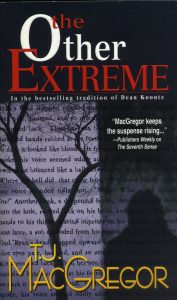
 The Great American Paperback by Richard A. Lupoff
The Great American Paperback by Richard A. Lupoff
Collectors Press, July 2001
p212: Dark of the Woods as illustration
p215: “Between Ace Doubles, Singles, and Specials, this publisher promoted an eye-popping array of science fiction authors: Samulel R. Delany, Ursula K. Le Guin, Philip K. Dick, Roger Zelazny, Robert Silverberg, Harlan Ellison, Andre Norton, Clifford D. Dimak, Jack Williamson, Edmond Hamilton, Dean R. Koontz and many others.”
p250: Invasion as illustration
p254: “Neither line was especially distinguished, but both bear consideration for the occasional surprise such as Laser 9 by ‘Aaron Wolfe’ (Dean Koontz) and first novels by several authors who went on to significant careers with other publishers.”- The Other Extreme by T.J. MacGregor
Pinnacle Books, October 2001
On the cover: “In the bestselling tradition of Dean Koontz” - The Stephen King Universe by Stanley Waiter, Christopher Golden and Hang Wagner
Renaissance Books, 2001
p120: “Bag of Bones also mentions several of Mike’s companions on the bestseller lists …Dean Koontz…”
p179: “…virtually dozens of writers – including Dean R. Koontz…” - Sex and Violence in Hollywood by Ray Garton
Subterranean Press, October 2001
p39: “Adam recognized it as the horror section because it held the works of only two authors: Stephen King and Dean Koontz.” - “Reviews by Edward Bryant” – Locus #490, v47 no5, November 2001, p70
In a review of Sex and Violence in Hollywood by Ray Garton: “that would make his name a household word right up there somewhere in the alphabet just before the King, Koontz K-section in the bookstores.” - No Sanctuary by Richard Laymon
Headline, December 2001
p88: “His hardbound fiction ran toward best-sellers by… Dean Koontz…” - Celebrity Skin: Tattoos, Brands, and Body Adornments of the Stars by Jim Gerard
Thunder’s Mouth Press, 2001, p36
”Next [Rose McGowan] played blonde bigmouth Tatum Riley in Scream, which was followed by starring roles in the remainder-binned Dean Koontz adaptation Phantoms and the indie release Going All the Way.” - Chinese Astrology by Sabrina Liao
Warner Books, 2001, p214
”Larry King and Dean Koontz are just two famous Rooster people.” - 17 Lies That Are Holding You Back and the Truth That Will Set You Free by Steve Chandler
Renaissance Books, 2001, p98
”And even though the leader might be outspoken and upbeat in another setting, what he was generating in his company felt as cold and evil as the darkest Dean Koontz novel.” - Cosmic Grooves: Cancer by Jane Hodges
Chronicle Books, 2001, p47
”In the Company of Cancers / Writers / Dean Koontz” - Demolition Angel by Robert Crais
Ballantine Books, 2001, p81
”A soft-looking man behind the research desk, reading a Dean Koontz novel.” - Mastering Point of View by Sherri Szeman
Story Press, 2001, p27
”Other examples of unlimited point of view in commercial fiction include… Dean Koontz’s Intensity.” - Hell On Earth by Michael Reaves
Del Rey, 2001, p110
One character says to another: ”This…Theory of yours … it sure isn’t something I’m ready to take upstairs – the upper echelons at Quantico aren’t real big Stephen King fans, if you know what I’m saying, although there is one guy I know likes to read Dean Koontz…” - The Evil Dead Companion by Bill Warren
Griffin, 2001, p109
”The Films Sam Rami Didn’t Make… Dragon Tears (based on the Dean Koontz novel, as yet unmade)” - The Sky Road by Ken MacLeod
Tor Books, 2001, p32
”This time she had dozens of paperbacks with tasteful Modern Art covers – Harold Robbins, Stephen King, Dean Koontz and so on – which she shoved across the table to the men whose names she didn’t know.” - Threshold: A Novel of Deep Time by Caitlin R. Kiernan
ROC, 2001, back cover
”Kiernan’s writings seem to be a successful blending of that by Poppy Z. Brite and Dean Koontz… will appeal to audiences of both authors. – Bookbrowser” - How to Publish and Promote Online by M.J. Rose
Griffin, 2001, p201
”And I love the books [Cemetery Dance publishes], which include some of my favorite authors, including Dean Koontz, Richard Laymon and others.” - Writer’s Guide to Queries, Pitches & Proposals by Moira Anderson Allen
Allworth Press, 2001, p189
”The fact that big name authors such as Stephen King, Dean Koontz, and John Grisham, have all chosen to offer titles in electronic form has helped this medium achieve a greater aura of respectability.” - Evil Whispers by Owl Goingback
Signet, 2001, back cover
”The suspense of a Clive Barker or a Dean Koontz. – Kirkus Reviews” - A Love Story for Cleveland by Ron Watt
Greenleaf Book Group, 2001, p141
”…many of them well known such as Mary Higgins Clark, Elmore Leonard, John Grisholm [sic], Dean Koontz, Tom Clancy and the late Robert Ludlum.” - Fool Moon (The Dresden Files, Book 2) by Jim Butcher
ROC, 2001, backmatter
Contains an advertisement for the ROC edition of The Best of Cemetery Dance volume II, which lists several contributing authors including Dean Koontz. - A Heartwarming Work of Staggering Genius by Dave Eggers
Vintage, 2001, frontmatter
”When birthdays and Christmas would come, I would consider buying [my mother] a new [book], the latest Dean R. Koontz or Stephen King or whatever, but I couldn’t.” - The Next President by Joseph Flynn
Bantam, 2001, p312
”There was only one attendant on duty and he had his nose buried in a Dean Koontz novel right up until the time the Toad creased his skull with the barrel of his pistol.” - Up in the Air by Walter Kirn
Doubleday, 2001
p213: “He’s reading Dean Koontz with a squinting intensity that Koontz just doesn’t call for and must be fake.” … “The agent closes his Koontz on his thumb, but not at the place he stopped reading. An Amateur.”
p214: “Allen looks put off and opens his paperback to the first page of underlined Koontz I’ve ever seen.” - Writer Tells All: Insider Secrets to Getting Your Book Published by Robert Masello
Owl Books, 2001, p33
”But by now I’ve heard every variation on this theme; I’ve had one friend or another advise me to write everything from Dean Koontz book to Danielle Steele.”
”And as successful as [Sidney Sheldon] is, he could no sooner write a Tom Clancy book than Tom Clancy could write a Dean Koontz – or than I could write a Sidney Sheldon.” 

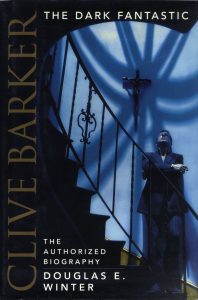 Book Wars a Flick by Rosette
Book Wars a Flick by Rosette
DVD, 2002 (at 0:12:50)
In this documentary about New York City street booksellers the filmmaker follows Peter Whitney to an estate sale to find books to resell. Whitney is lamenting that most of the books in this collection are popular fiction that he won’t be able to resell.
“If I find three or four books in here I’ll be lucky. Looks like today is going to be a wash out. Well, we’ll take a Dean Koontz. There’s a popular fictions you can sell.”- The H.P. Lovecraft Institute by David Bischoff
Wildside Press, 2002
Front dj flap: “With Stephen King to the north of him, Dean Koontz to the west, William Faulkner moldering in the south and H.P. Lovecraft close by in formaldehyde, Tony Dickens is nobody special: he’s just a teenage horror fan who lives in a dinky little town in an eldritch little state.” - Moon on the Water by Mort Castle
Leisure, July 2002
On the back cover: “’Most Castle resoundingly steps upon the podium with the likes of Stephen King and Dean Koontz.’ – Rave Reviews” - Clive Barker: The Dark Fantastic: The Authorized Biography by Douglas E. Winter
Harper Collins, July 23, 2002
p244: “Because she’s grooming me to be Jim Herbert’s replacement or Dean Koontz’s replacement, or whatever it was and I’m absolutely not up for that.”
p245: “Dean R Koontz, who, after laboring in virtual anonymity for a number of years, found bestsellerdom in a series of novels of terror and horror, offered harsh words of his own in an introduction to the anthology Night Visions 6 (1988). He declined to name Barker, lambasting a ‘reasonably well-known writer’ who had ‘written and spoken often about what he sees as the “virtue” of pushing into new realms of perversity and repulsion.’ With its accusations of ‘intellectual McCarthyism’ and ‘moral and intellectual bankruptcy’, the introduction had, as is often the case with such essays, far more to say about its author that it did about his intended victim.”
p480: “Decisions are based increasingly on past sales figures, a game of numbers in which few major houses might have patience with Clive barker, given the extraordinary commercial appeal of writers like Stephen King, Dean R Koontz and Anne Rice, with whom he is often compared.” - Under the Overtree by James A. Moore
Leisure, October 2002
On the back cover: “’Fans of The Shining and Phantoms…’ –Midwest Review of Books” - The Brian Lumley Companion edited by Brian Lumley & Stanley Waiter
TOR, November 2002
In an interview between Brian Lumley and Stanley Waiter on pages 167 and 168, Waiter asks Lumley about being a “croos-genre” writer and about being identified as a “horror writer” in relation to hoe Dean Koontz is a “cross-genre” writer and does not like to be identified as a “horror writer”. - Julie Christie by Anthony Hayward
Robert Hale Ltd (UK), October 2002
p134-136: Features a description of Ms. Christie’s involvement in the filming of Demon Seed.
p138: A one paragraph quote from Ms. Christie regarding participating in American films, specifically Demon Seed. - The 13 Best Horror Stories of All Time edited by Leslie Pockell
Warner Books, 2002, pviii
”…the horror story continues to flourish in today’s world of Peter Straub, Dean Koontz, and of course Stephen King…” - Bestsellers: Popular Fiction Since 1900 by Clive Bloom
Palgrave Macmillan, 2002, p258
The World Book Day 2000 Poll to find Britain’s favorite writers places Dean Koontz at number 28. - Bitter Almonds: The True Story of Mothers, Daughters, and the Seattle Cyanide Murders by Gregg Olsen
St. Martin’s Press, 2002, p231
”Employees later remembered Stella Nickell as aloof, with scarcely two words for anyone she didn’t know. On her breaks, she often sat with a Dean Koontz or Stephen King paperback.” - The Christian Imagination: The Practice of Faith in Literature and Writing by Leland Ryken
Shaw, 2002, p302
”How can a moral evil be more responsibly portrayed? Horror writer Dean Koontz, in describing his serial-killer novel Intensity, objects to the psychologizing of evil. Part of the thrust of his book, he argues, comes ‘out of the Freudian theory that has led us to believe the virtually anybody can be understood or rehabilitated. Bu this isn’t true. We put ourselves at risk when we accept that there is no such thing as real evil in the world, that it’s really one degree or another of dysfunction and that is can be treated.’” - Defying the Crowd: Simple Solutions to the Most Common Relationship Problems by Robert J. Sternberg
Free Press, 2002, p265
”For example, Dean Koontz, author of best-selling thrillers, grew up in a very poor family and used fiction as an escape from his environment. He received little support from his parents, who viewed books as a waste of time.” - Devil’s Knot: The True Story of the West Memphis Three by Mara Leveritt
Atria Books, 2003, p242
”’I will read about anything, but my favorites were Stephen King, Dean Koontz, and Anne Rice.” - Early Reading Development and Dyslexia by Valerie Muter
Whurr Pub Ltd, 2003, p72
”Table 5.1: Extracts from tests of print exposure devised for a UK sample of 15-16-year-olds. The task is to tick (a) the correct author names, (b) the correct book titles.” Dean is listed in the ‘author recognition task’. - The Healing Quilt by Lauraine Snelling
Waterbrook Press, 2002, p185
”George didn’t lose the worry crease between his eyebrows until he buried himself in a Dean Koontz novel he’d been reading.” - Introduction to Executive Compensation by Steven Balsam
Academic Press, 2002, p283
”Authors Dean Koontz and John Grisham were estimated to have earned $34 million and $36 million, respectively (Parade Magazine 2001).” - Money Management for the Creative Person: Right Brain Strategies to Build Your Bank Account and Find the Financial Freedom to Create by Lee Sibler
Three Rivers Press, 2002, p141
”What They Earn / Dean Koontz / $34,000,000”
Citing the 2001 Parade Magazine article. - Poems from Homeroom: A Writer’s Place to Start by Kathi Appelt
Henry Holt & Company, Inc., 2002, p7
From the poem “Good Job, Buddy”:
”All the masters of mystery are there / Mary Higgins Clark, / Clive Cussler, / Richard North Patterson, / Dean Koontz most of all.” - Mutant by Peter Clement
Fawcett Books, 2002, frontmatter
”[Mutant] is steeped in the thriller traditions of John Saul, Dean Koontz, and Stephen King… – Doctor’s Review” - Yahoo: The Ultimate 2002 Reference to the Web by H.P. Newquist
iBooks, 2002, p189
”For example, did you know that shockmeister Dean Koontz is romance novelist Leigh Nichols?” - Preternatural 3 by Margaret Wander Bonanno
Tor Books, 2002, p21
”If you don’t know what a midlist writer is (and where did you park your saucer, anyway?) think of it this way: John Grisham, Tom Clancy, Stephen King, Michael Crichton, Dean Koontz, Danielle Steele – NOT. Got it?” - The Ferryman by Christopher Golden
Signet, 2002, frontmatter
From a review for Strangewood by Christopher Golden: “…will lead readers to wonder if Christopher Golden is actually a pseudonym for a collaboration between Dean Koontz and Peter Straub… – BookBrowser” - “Minis and popular books on same page in 2002”
Variety, June 14, 2002
”[Producer Mark Wolper says that] what’s important is that the book have a profile beyond people who have read it. Whether you’ve read Stephen King or Dean Koontz, everyone knows their names.” - Art of Imagination: 20th Century Visions of Science Fiction, Horror, And Fantasy by Frank Robinson, Robert Weinberg, and Randy Broecker
October 2002
A massive, oversized, 670 page book on the history of Science Fiction, Horror, and Fantasy publishing in the 20th century. It includes thousands of images of book covers and movie posters. Dean Koontz covers are featured on pages 49, 154, 454-455, and 483, while Dean is discussed or mentioned on pages 450-455, 482, 496, and on the back of the dust jacket. - “Dishing the Dirt: Valdes-Rodriguez’s debut novel takes readers past stereotypes into Latina life”
com, May 18, 2003
URL: www.savannahnow.com/stories/05182003/LOCDirtyGirls.shtml
”’I’d rather say that I prefer to be called a writer. I don’t see Dean Koontz being called a white writer. I’m a writer just like he is,’ she said.” - “Daffy Duck cel sells well at GMS celebrity auction” by Leon Bogdan
Press Enterprise, June 3, 2003 (online)
”Author Dean Koontz, a Pennsylvania native, again sent along an autographed novel, as he has done in prior years.” - The Policy by Bentley Little
Signet, September 2003, Paperback
On the cover: “A master of horror on par with Koontz and King.” −Midwest Book Review - Afterword to She Wakes by Jack Ketchum
Cemetery Dance Publications, 2003, Hardcover
”The bottom had just dropped out of the market for supernatural fiction as it does periodically and unless you were King or Straub or Saul or Koontz, forget it.” - The Hades Project by Justin Gustanis
Brighid’s Fire Books, September 2003
In an ad for this title in issue #45 of Cemetery Dance Magazine, p31. (September 2003)
”As dark, disturbing and dangerous as anything by Koontz…” – Philip Tomasso III, author of Adverse Impact and Johnny Blade - Goon by Edward Lee & John Phelan
Overlook Connection Press, 2003
In the Introduction by T. Winter-Damon
”No. I don’t mean Charlie Grant. I don’t mean Ray Bradbury. Nor Ray Russell. Nor William F. Nolan. An I sure don’t mean Dean Koontz.” - Dean was featured in Random House’s Library Bulletin, which was included in the October 1, 2003 issue of Library Journal (vol. 128, no. 16, attached to page 33). Page three featured an announcement for Odd Thomas.
- Media Play promotional flyer
November 2003
This promotional flyer was handed out in Media Play stores late in November 2003. One side featured coupons for in-store promotions. The other side announced forthcoming movies, music and books. Odd Thomas was listed and pictured on this flyer. - The Literary Guild Insider
Special Edition 2003 (December)
The cover of this newsletter/catalog for The Literary Guild book club features Dean on the front cover along with the cover of Odd Thomas. Odd Thomas is also given a full page on page two. The cover of Odd Thomas was also featured on the envelope the catalog was mailed in. - Work It, Girl!: Productive and Fun Tips for the Hip Working Chick by Wendy Burt
McGraw-Hill, 2003, p18
”Is horror your thing? Check out a Dean Koontz or Stephen King thriller and you’ll be crying for your mama!” - The Voice of the Butterfly by John Treadwell Nichols
Chronicle Books, 2003, p44
”I exclaimed, ‘Oh my God, I’m sorry!’ and stooped to gather them up: Dean Koontz, Elmore Leonard, and James Ellroy – it figured.” - Stuff Happens (and Then You Fix it!): 9 Reality Rules to Steer Your Life Back in the Right Direction by John Alston
John Wiley & Sons, 2003, p15
Quotes Dean in a sidebar: “The only ones who get anything done by just standing around are mannequins. – Dean Koontz” - Hollywood’s Stephen King by Tony Magistrale
Palgrave/Macmillan, 2003, pxv
”But why have Stephen King’s titles proliferated on celluloid while other famous horror authors, who have composed their own share of outstanding work – Peter Straub, Clive Barker, Dean Koontz, Joyce Carol Oates, and Anne Rice spring to mind immediately – have not?”
The book’s index lists the mention of Dean as being on page xviii. This is incorrect. - Gateways: A Repairman Jack Novel by F. Paul Wilson
TOR/Forge, November 2003, front dustjacket flap
””As Dean Koontz says, ‘Repairman Jack is one of the most original and intriguing characters to arise out of contemporary fiction in ages. His adventures are hugely entertaining.’” - “Horror Suits Leisure” by Don Kaye
Fangoria #229, January 2004, p34-37
””If Scream re-energized the horror movie genre, then Leisure books has had the same effect on horror fiction,” says Keene. “Not only have they brought dome of the great authors back to the bookstores [Laymon, Ketchum, Clegg, Lee, Piccirilli, Gerard Houarnet, etc.], but other mass-market publishers are now following in their footsteps. The days of only being able to find King, Koontz, Rice, Barker and sometimes Bentley Little are gone. There are more choices for horror fiction, and the majority are excellent ones.”
Also, the cover of Richard Laymon’s To Wake the Dead is pictured on page 36. - Risen by J. Knight
Pinnacle Books, January 2004, front & back covers
”J. Knight has crafted a masterful thriller, closely in step with Stephen King and Dean Koontz. – The Charlotte Austin Review” - The Populist Manifesto: Bestseller Stephen King Raises High The Banner of Middlebrow Fiction By Linton Weeks
Washington Post, January 5, 2004, pC1
” If, however, you are hoping to hook up with the latest horror novel by Stephen King or Dean R. Koontz, if you want to pick up a copy of John Grisham’s latest work or “lost boy lost girl” by Peter Straub, you won’t find it at Chapters. You’ll have to go down the block to Barnes & Noble for your blockbuster fiction.” - Hustler’s Barely Legal
February 2004
The pictorial on pages 80-87 features a shelf of books in the background. One of these books is the UK paperback edition of False Memory. (This book is most clearly shown in the photo in the table of contents on page five.) - Dean was featured in Random House’s Library Bulletin, which was included in the February 15, 2004 issue of Library Journal (vol. 129, no. 3, attached to page 33). Page three featured an announcement for The Taking.
- Midnight Mass by F. Paul Wilson
TOR – April 2004
On the front cover:
”Like the best of Dean Koontz’s work, Wilson’s work combines an action/adventure year with a touch of the fantastic.” The Denver Post 
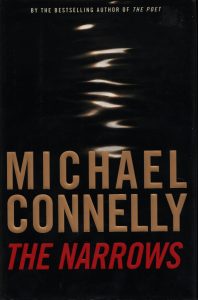
 Write Away: One Novelist’s Approach to Fiction and the Writing Life by Elizabeth George
Write Away: One Novelist’s Approach to Fiction and the Writing Life by Elizabeth George
HarperCollins – March 2004
p171: “Characters working against time—usually in thrillers—are a natural source of suspense. When in Frederick Forsythe’s The Fourth Protocol, the hero is on the trail of a Soviet spy in possession of a nuclear bomb…you’ve got suspense. The same applies to Dean Koontz’s Twilight Eyes: Get out of the cave before the bomb goes off.- The Narrows by Michael Connelly
Little Brown – May 3, 2004
p355-356: “I remember she told me once that your store was like the only place around where you could get a book signed by a writer named Dean Koontz… He showed me a book called The Face. I didn’t know if Kiz had it or now but I was going to buy it. ‘I don’t know. Did he sign it?’ ‘Yeah, signed and dated.’ ‘Okay, I’ll take it.'” - Saga of Seven Suns Book 3: Horizon Storms by Kevin J. Anderson
Warner Books – July 2004
Dedication, pv.: “To DEAN KOONTZ, who has offered his advice, ideas, and encouragement since the very beginning of my career. A long time ago, he told me to “think big” with my stories; now, with The Saga of Seven Suns already longer than Tolstoy’s War and Peace, I hope this is what he meant!” 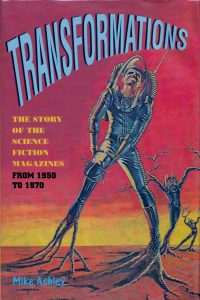

 TV Guide – October 3-9, 2004
TV Guide – October 3-9, 2004
An ad for The Mystery Guild book club appears after page 65 and features the covers of The Taking, Robot Santa, and Odd Thomas.- The Horror Express #3 – Winter 2004
p4: The Editor’s Column
“I know many people are weary about subscribing to small pres publications but believe me The Horror Express is here for good with authors such as Dean Koontz…” - Shock Horror!: Astounding Artwork from the Video Nasty Era by Francis Brewer, Harvey Fenton, and Marc Morris
FAB Press – January 2005
p85: Funhouse UK VHS artwork
p213-14: Funhouse UK VHS artwork, release details, and film description  Sex, Drugs, Einstein & Elves: Sushi, Psychedelics, Parallel Universes and the Quest for Transcendence by Clifford A. Pickover, Smart Publications, 2005
Sex, Drugs, Einstein & Elves: Sushi, Psychedelics, Parallel Universes and the Quest for Transcendence by Clifford A. Pickover, Smart Publications, 2005
p44: “There is this belief that we perceive the world the way we do because of shared convictions, which are expressed in language…If we could just think about the world differently, we’d look around and see everything in a different way, but we can’t do that because language is built from the shared perceptions of the community. [Perhaps] this limitation blocks our perceptions of many things, so that we’re prisoners of language. If language influences the way we see, and even limits our view of reality, then language is hugely important. If we restrict our use of it, we’re restricting our vision.”
—Dean Koontz in Katherine Ramsland’s
Dean Koontz: A Writer’s Biography
p52: Let’s have some more fun in this section. Could a best-selling author, such as Stephen King, John Grisham, Anne Rice, or Dean Koontz succeed in creating a best-selling novel if forced to use ten words randomly selected from a dictionary in the first two pages of a novel? (Some colleagues believe that with names like “Stephen King” or “Anne Rice” or “Dean Koontz” on the cover, the books would fly off the shelves even if the entire book were only ten words randomly selected from a dictionary.)
p124: “I think, on an unconscious level, we’re more in tune with the realities of existence than we are on a conscious level…Our culture narrows our vision. It allows us to see things in a certain way, but prevents us from seeing in other ways. We may have the capability to see three hundred sixty degrees, but we basically see life in a narrow wedge. If only we could look at the world with no prejudices, with our senses wide open to reception, we might see everything in a totally different way…”
—Dean Koontz in Dean Koontz: A Writer’s Biography
p174: The advance has two major purposes. One is obviously to ensure that the author gets a certain amount of money. Often, an author never gets a dime more than his advance. A second purpose is to ensure that publishers devote some effort to promoting the book so they can at least get back their advance money. A significant advance would seem to guarantee a certain level of commitment to the book. Dean Koontz has noted that publishers push hard with advertising and promotion only on those books on which they were at risk of losing money.
p179: I know that authors, even the biggest book authors, often agonize with their publishers over imaginative titles that will maximize book sales. Dean Koontz, for example, often debated back and forth with his editors about book titles. I recall that his publishers often wanted one-word titles, so, for example, they changed Koontz’s Lighting Road to Lightning. Koontz is certainly the master of one-word titles with his bestsellers like: Midnight, Shattered, Icebound, Phantoms, Whispers, Strangers, Hideaway, Ticktock, Intensity, Shadowfires, and Watchers.
p187:
Dean Koontz
I once heard a story about an English professor who told her class that a good short story needs five elements: a religious reference, a sexual reference, lurking danger, brevity, and a person with expertise in a field.
Heeding the professor’s advice, the next day a student submitted a story to the professor. The entire story consisted of only two sentences: “My God!” the zoologist said. “A leech is clinging to your left breast.”
Novelist Dean Koontz says that a best seller should require collaboration between a hero and a partner: “I started with that premise—that change is accomplished not so much on your own, but by finding another person who brings something to you. That person has something you need and you have something that he or she needs in terms of emotional or intellectual interaction. Together you can to some degree transform yourselves, your future, your destiny.”
We should listen to Koontz. At least seven of Koontz’s novels rose to number one on the New York Times hardcover best-seller list (Lightning, Midnight, Cold Fire, Hideaway, Dragon Tears, Intensity, and Sole Survivor), making him one of only ten writers ever to have achieved that milestone. Eleven of his books have risen to the number-one position in paperback. Koontz’s worldwide sales are over 200 million copies.
On a personal note, I was able to publish more than 30 books since 1990 because of “drive,” not “talent.” Dean Koontz says that “If I’ve learned one lesson in life, it is that you can have all the ability in the world and it means absolutely nothing without perseverance.”
p231-2: Finally, I would also create an on-line virtual reality reminiscent of Burning Man. I’d call it the Aortic Arch. The emphasis is perhaps less on art but more on ideas. Here, we’ll discuss books like Geoff Dyer’s Yoga for People Who Can’t Be Bothered to Do It, Daniel Pinchbeck’s Breaking Open the Head: A Psychedelic Journey into the Heart of Contemporary Shamanism, and movies like Vanilla Sky, Jacob’s Ladder, and From Beyond. But more importantly, we’ll be doing—writing books together, creating art, generating ideas. Anyone can participate in the Arch, but the upper realms are open initially to the movers, shakers, and dreamers who have achieved something in life, like writing a book, making a movie, patenting an invention, or simply becoming famous. It would include people like Xeni Jardin, Jeff Bezos, John Brockman, Maria Spiropulu, Connie Willis, Stephen Spielberg, Arthur C. Clarke, Dean Koontz, Freeman Dyson, Neal Stephenson, Alexandra Aikhenvald, Amy Chua, Maggie Balistreri, and Dr. Rick Strassman, the clinical psychiatrist who conducted the DEA-approved research in which he injected numerous volunteers with DMT. Gradually, more people enter the upper Arch as they achieve and create, with those in the upper arch helping other “Archites” as much as possible. In the Arch, we will start projects, make money, enhance our creativity, generate novelty, and push the limits of possibility. The Arch will also work on ways to locate creative and intelligent people in developing nations who do not have access to computers, and attempt to foster a global education system.- Transformations: The Story of the Science Fiction Magazines from 1950 to 1970 by Mike Ashley
University of Liverpool Press, May 30, 2005
p263: ” Wrzos had a good track record in developing new writers, especially considering the limited conditions under which he worked. Without doubt his best known discovery was Dean R. Koontz. However, the delay in being able to use new stories, and the time spent by Wrzos in helping Koontz whip ‘A Darkness in My Soul’ into shape meant that Koontz had already appeared elsewhere before this novelette appeared in the January 1968 Fantastic (on sale in November 1967). His first appearance in an sf magazine was with “Soft Comes the Dragons’ (FOSF, August 1967). Wrzos also bought the first story from Doris Piserchia, ‘Rocket to Gehenna’ (Fantastic, September 1966), and gave first US publication to Peter Tate with “The Thinking Seat’ (Fantastic, May 1967; previously run in New Worlds, November 1966).”
p267: “Just as with Wrzos and Koontz, Harrison was unable to get Fault’ into print earlier, by which time Tiptree had appeared in Analog with ‘Birth of a Salesman’ (March 1968) and If with ‘The Mother Ship’ (June 1968).”
p269: “There were new discoveries, such as Dean Koontz, Greg Benford, Gary Jennings and Leonard Tushnet, alongside the more slick-style fantasies of Reginald Bretnor or Ron Goulart. There were old reliables such as Jack Vance (a new Dying Earth series featuring Cugel the Clever), Zenna Henderson (with new People stories) and Brian W. Aldiss (his award-winning novella about invisibility, ‘The Saliva Tree’, September 1965).”
p290: “Much more important was the revival of Venture Science Fiction, the companion to FeSF. Its first issue, dated May 1969, appeared in March. It was a 128-page digest, selling for 60 cents, and looked similar to FeSF. Publisher Joseph Ferman believed that there was an upturn in the market, further encouraged by the interest in Star Trek, 2001 and the Apollo lunar programme, but to be cautious he issued it on a quarterly basis. The rivalry with paperbacks continued, even though it was a battle already lost by the magazines. Each issue ran a full-length novel supported by a few very short stories. Although this had been the plan with the original Venture, that ended up publishing longer short stories. In the revived Venture, they were mostly very short pieces. In this sense the magazine more closely resembled the original Satellite SF in its digest format. Unfortunately there was little to make Venture stand out. Few of the lead novels and hardly any of the stories were especially memorable. Harry Harrison’s ‘Plague Ship’ (November 1969) and Dean R. Koontz’s ‘Beastchild’ (August 1970) were the best of the novels, the last making that issue especially collectible these days, since Koontz became a highly popular novelist. But Venture showed that it was virtually impossible for a new magazine to make sufficient inroads into the market at that time, even when edited by Edward Ferman and tied in with FOSF’s distribution. The magazine folded after six issues in August 1970.”  Bookery’s Guide to Pulps & Related Magazines 1888-1969 by Tim Cottrill
Bookery’s Guide to Pulps & Related Magazines 1888-1969 by Tim Cottrill
Bookery Press, June 2005
p348: “best-selling horror novelist and nearest rival in popularity to Stephen King. His early appearances in paperbacks and dijest magazines (beginning in 1967 at Fantasy and Science Fiction) have become collector’s items.”
It then goes on to reference the following entries (elsewhere in the book) for SF magazines that contain Koontz stories: Amazing Stories, Fantastic, Fantasy and Science Fiction, Galaxy Science Fiction, IF-Worlds of Science Fiction, Venture Science Fiction, Worlds of Tomorrow- Science Fiction Quotations by Gary Westfahl
October 2005
Features quotes from “The Night of the Storm” (p172), That Moon Plaque: Comments from Science Fiction Writers (p288), and “A Mouse in the Walls of the Global Village” (p398). - Breeding Ground by Sarah Pinborough
Leisure Books, 29 August 2006
From the front cover: “Fans of Bentley Little, Richard Laymon and Dean Koontz will be pleased.” –Publishers Weekly on The Reckoning” - On Writing Horror: Revised Edition edited by Mort Castle
Writer’s Digest Books, November 18, 2006
p22: Watchers is listed as book number 21 in the list “What You Are Meant to Know: Twenty-One Horror Classics” by Robert Weinberg
p133-4: Quoting Harlan Ellison, “In only a very few cases were any of them successful. Dean Koontz, as a diametrically opposed exception, is a fine example of a real writer, because Dean is an accomplished storyteller who has a fecundity of imagination. And he’s paid his dues. He has spent years learning to write well.”
p144: “Frankenstein has been adapted and reworked as nauseam, but it is fair to say no one has applied a biotechnical upgrade to the story more successfully than Dean Koontz in his brilliant four-book series dealing with the re-animated giant and his mad creator. No one can accuse Koontz, along with Kevin J. Anderson and Ed Gorman, his collaborators on the first two of the planned four-part series, of grave-robbing (sorry) for revisiting this timeless classic.”
p162: “…Koontz has perhaps become Mary Shelly’s true progeny with his fusion of science and fear…”
p225: Lists Dean as one of the authors published by Cemetery Dance Publications. - Torchwood: Slow Decay by Andy Lane
BBC Books, 11 January 2007
p147: “Rhys was reading a Dean Koontz novel. He’s read all of Dean Koontz’s novels, and still kept them in the flat, even though he wasn’t likely to read them again. Gwen had tried to read one, once, just to please Rhys, but she couldn’t get past the first paragraph. At the time she’d though the horror-based plots in which innocent people were menaced by dark forces beyond their comprehension too outlandish for words.” - The Triumph of the Thriller by Patrick Anderson
Random House, February 6, 2007
p142: A review of Life Expectancy
p263: A list of the thrillers that appear in Publishers Weekly 2005 list of bestsellers. Forever Odd is listed at number 18.
p264: A paragraph mentioning thrillers in the next 100 books in the Publishers Weekly list, which mentions Velocity. 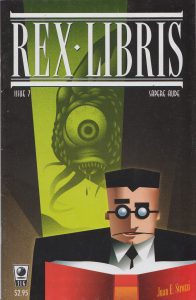
 Rex Libris #7: Monster Merry-go-Round! By James Turner
Rex Libris #7: Monster Merry-go-Round! By James Turner
Slave Labor Graphics, February 2007
In the introductory column titled “Barry’s Brain”: “From the monsters of ancient literature, such as Medusa (not to mention the Cyclops, Scylla, the Harpies, the Hydra, the Nemean Lion, the Minotaur, Grendel, and Cerebus), to modern day threats such as the pod people, we just can’t seem to get enough of bizarre beasties. The selection of monster tales, both novels and short stories, is virtually endless; among the best are (in no particular order): Mary Shelley’s Frankenstein: The Modern Prometheus (Haven’t read it but I hear it’s a classic), Bram Stoker’s Dracula (Saw the movie), Gulliver’s Travels by Jonathan Swift (Densely written but filled with the wild, weird, and satirical), Voyage au Centre de la Terre by Jules Verne, The Strange Case of Dr. Jekyll and Mr. Hyde by Robert Louis Stevenson, Homer’s The Odyssey, H. P. Lovecraft’s highly descriptive and disturbing Call of Cthulhu, The Colour Out of Space, At the Mountains of Madness, The Dunwich Horror, and The Lurking Fear; Demon Seed and Phantoms by Dean Koontz, Relic and Reliquary by Douglas Preston and Lincoln Child… these are just the tip of the iceberg, of course, as pulp magazines were filled–filled, I say!–with glorious monster stories.”
Reprinted in Rex Libris: Book of Monsters, April 2009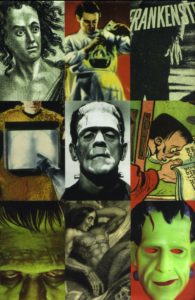
 Breakfast in the Ruins by Barry N. Malzberg
Breakfast in the Ruins by Barry N. Malzberg
Baen Books, April 3, 2007
p38 “Nonetheless, the magazines which at that time were publishing only 12,000 words of original material an issue-three stories of average length or a long novelette and a short one-received through the six months of my tenure an average of one hundred manuscripts a week. The scripts came from unknown and unpublished writers in preponderance, of course, but at least 25 percent of them, week after week, were signed by recognized names: some of them, like Leiber or Lafferty, at the top of the market as then constituted; others, like Wodhams, Koontz, Meredith, or David R. Bunch, well in the middle range.”- Frankenstein: A Cultural History by Susan Tyler Hitchcock
W.W. Norton, 9 October 2007
p317: “As pop novelist Dean Koontz shot out two volumes of a modern-day Frankenstein saga in 2005, with a third promised for 2007, the books instantly leaped up onto the mass-market paperback bestseller list.” - Who & Me by Barry Letts
BBC World Wide Audiobooks, 2007
At approximately 1:43:00: “And when Don tried to find out the details he was told the information was top secret. Why? No matter how much he ferreted around he couldn’t get to the bottom of the mystery. Were they covering up some dreadful calamity? Or had they let loose upon the world a horror beyond the imagining of a Stephen King or a Dean Koontz and were desperately trying to keep it under wraps?” - The Target Book: A History of the Target Doctor Who Books by David J. Howe
Telos, 2007
p124: “At this point, W H Allen was renamed Virgin Publishing Ltd and continued as publisher of the Target list. Virgin eventually decide to retain the Doctor Who b ooks, but the paperback Star list was cancelled, along with the W H Allen hardback list, the authors going elsewhere or finding themselves without a publisher. Ironically, one author of note, Dean R Koontz, was picked up by Headline Books, and his first novel for them, Lightning, became an international best-seller and launched Koontz on the road to world-wide success.” 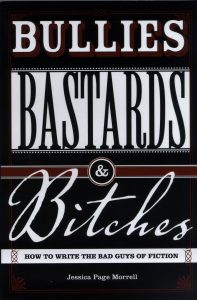 Bullies, Bastards & Bitches: How to Write the Bad Guys of Fiction by Jessica Page Morrell
Bullies, Bastards & Bitches: How to Write the Bad Guys of Fiction by Jessica Page Morrell
Writer’s Digest Books (July 28, 2008)
p65: “Such is the case of the Dean Koontz series character who is boldly named Odd Thomas. Odd is a short-order cook by trade, but his particular psychic skills bring him into the company of the dead and newly murdered citizens of his town, along with the other wandering dead, such as Elvis. Besides being able to commune with the dead, Odd is also able to see other depraved spirit creatures, bodachs, so that he knows violence and carnage if forthcoming. Odd seems to signify that the world is not safe and the dead are restless.”
p124: “In Dean Koontz’s Forever Odd, the villainess is named Datura, which reflects her kinkiness, coldness, and cruelty. However Koontz cleverly has chosen a name with layers of meaning, something fiction writers are always striving for. Datura is a flowering plant that is also called devil’s trumpet and angel’s trumpet, and there are many myths associated with it in cultures worldwide.”
p132-6: “A terrific example of a villain who is depicted as a growing threat is Corky Laputa in Dean Koontz’s The Face…” The author goes on to quote and discuss The Face for the next three pages. Too much to quote here.
p235: “In Forever Odd Dean Koontz gives the reader the sociopathic villain Datura. With the morals of a vampire and the soul of a starving wolf, she encompasses everything men—and women—fear in women. She’s kinky and domineering. She comes with several henchmen, who could also be classified as sex slaves, and she wants the protagonist because of his psychic ability. She’s also drawn to unexplainable phenomena, such as haunted houses, because she likes the dark evil that lurks there. She’ll do anything for kicks, and she’ll hurt anyone who gets in the way of her pleasure and twisted goals.”
p261: “Ethan and Fric, the vulnerable protagonists in Dean Koontz’s The Face, are good examples of characters that must face down a bad guy and a supernatural threat, and it takes all their courage and wits to do so.”
p266: “Or, if they’re [ghosts] fairly benign, like Koontz’s Odd Thomas, they simply want to be left alone most of the time.”
 The Woods Are Dark (The Restored & Uncut Edition) by Richard Laymon
The Woods Are Dark (The Restored & Uncut Edition) by Richard Laymon
Cemetery Dance Publications, August 2008
Introduction by Kelly Laymon, p6: “Though the original draft was praised by friends Dean Koontz and Gary Brandner, who blurbed the original version, my father went along with the revisions.- Cyclonopedia: Complicity with Anonymous Materials by Reza Negarestani
re.press, August 30, 2008
p17: “In Dean Koontz’s novel Phantoms, Timothy Flyte, a renegade paleontologist who considers himself a professor of Ancient Epidemics, is a tabloid writer researching an unnamable Tellurian sentient being which he calls the Ancient Enemy, responsible for devouring countless civilizations (the Aztecs and the Lost Colony at Roanoke, for example). A bio-chemical combat unit invites him (in line with The Exorcist, in which neurologists invite a vicar for assistance) to investigate the mysterious disappearance of people in a village in Colorado The Ancient Enemy is a Thing-like bio-hazardous predator hunting organic entities, using bio-sorcery and mutating various organic phyla (possessing a soldier and turning his blood into a small lizard). The Ancient Enemy is trying to spread its gospel via three chosen characters. Timothy Flyte finds many parallel traits between The Ancient Enemy and The Antichrist Examining the corpses of victims, he detects traces of porphyrin, a chemical substance common to blood, plants and petroleum. The Ancient Enemy or the Tellurian Antichrist which persistently looms in the Mesopotamian dead seas (originally where Antichrist comes from) or near the oceans is Petroleum or Naft (Arabic and Farsi word for oil).”
p19: “Or, once again, take Oil as a lubricant, something that eases narration and the whole dynamism toward the desert. The cartography of oil as an omnipresent entity narrates the dynamics of planetary events. Oil is the undercurrent of all narrations, not only the political but also that of the ethics of life on earth. Oil lubes the whole desert expedition toward Tellurian Omega (either as the Desert of God or the host of singularity, the New Earth). As a Tellurian lube, oil simply makes things move forward. Koontz’s Phantoms is key for this movement toward Tellurian Omega, through the superficial (GAS pipeline), subterranean (Oil reservoirs) and deeply Chthonic (Thomas Gold’s The Deep Hot Biosphere) Thingness of petroleum, the Blob. To grasp oil as a lube is to grasp earth as a body of different narrations being moved forward by oil. In a nutshell, oil is a lube for the divergent lines of terrestrial narration.”
p20: “X: Koontz imagery is really helpful for grasping the ‘Thingness’ of oil, its subterranean cohesion as a singular anorganic body with its own agendas – assuming here that ‘the blob’ takes on an increasing ‘agentic’ function on the journey ‘up-river’ (from GAS-station to chthonic reservoir?). Bush and Bin Laden are obviously petropolitical puppets convulsing along the chthonic stirrings of the blob. Collapse all manifest policies and ideologies onto the Tellurian narratives of oil seepage. ‘Even if Omega-Pest runs on hydrogen nanofusion, the concrete war machines chopping up contemporaneity are indubitably very oily’ – Do you think there’s a relatively clear way to specify the Oil / Islamic Apocalypticism relation that differentiates it more or less reliably from the residue of non-Islamic oil-fueled disorder on the planet?” - Afterlife by Douglas Clegg
Cemetery Dance Publications, September 2008
Dedication: “For Dean Koontz─mentor, friend, colleague, who continues to write and inspire.” - Hard-Boiled Sentimentality: The Secret History of American Crime Stories by Leonard Cassuto
Columbia University press, November 5, 2008
p240-241: Just over three paragraphs discussing Intensity starting with “Scores of serial kill stories draw on elements of [Thomas] Harris’s formula. Conside Dean Koontz’s best-selling 1995 novel Intensity…” and ends with “Dean Koontz is a best-selling storyteller in his own right, but like a blues musician, he’s working within a set of refined conventions here.” - Exclusive: Stephen King on J.K. Rowling, Stephanie Meyer
USA Weekend VIP Blog
Original URL: http://vip.usaweekend.com/2009/02/exclusive-stephen-king-on-jk-rowling-stephenie-meyer/
“You’ve got Dean Koontz, who can write like hell. And then sometimes he’s just awful.”
This blog post was mentioned in the article “It’s good to be the King” published in the March 6-8, 2009 issue of USA Weekend, however, Dean is not mentioned in the article. - Writers Workshop of Horror Edited by Michael Knost
Woodlands Press, July 5, 2009
Chapter 3, J.F. Gonzalez: “It’s no surprise that many of the books you find occupying the top positions in the New York Times Bestseller’s list end happily. Even in the realms of horror fiction, those works that conclude with some kind of TAL-HEA ending can make the coveted NY Times List. Dean Koontz comes immediately to mind and, in my opinion, he uses this technique very effectively. You feel for his characters, you like them, and you want them to survive. And very often they do. Changed from whatever horrifying experience they’ve been through, made stronger by it perhaps, but they’ve survived and they definitely live Happily Ever After.
The works of Stephen King usually wind up on the Times Bestsellers list, too. However, unlike the novels of Dean Koontz, King is more daring. King has no problem killing off well-liked, major characters you think are going to survive. Sometimes events play out in his fiction you never expect to happen.”
Chapter 22, Gray Frank Interviews F. Paul Wilson: “GF: Do you think a series is the best way to brand an author? FPW: No. King and Koontz did it without series characters, as did Ken Follett.”  Carrion Comfort by Dan Simmons (20th Anniversary Edition)
Carrion Comfort by Dan Simmons (20th Anniversary Edition)
Thomas Dunne Books, November 24, 2009
Acknowledgements: “Dean R. Koontz, whose kind encouragement was as perfectly timed as it was generous.”
pxxviii-xxix: “As the years passed, I watched a strange thing happen to my early chosen field of horror. My former editor lived up to her goal of creating an ‘empire’ of horror fiction. She and other editors working for other publishers simply published so much of the stuff, under the assumption that readers couldn’t get enough of it (since them seemed not to be able to get enough of Stephen King’s work, was the reasoning, or Dean Koontz’s) that after a few years Gresham’s Law kicked. The bad drove out the good. The market was oversaturated. The readers were first satiated and then wary as they realized the low quality that was being sold in such vast quantities.”
pxxx-xxxi: “I had a mentor after all, althgouh he was invisible to me at the time. It turns out, I discovered later, that a certain Dean Koontz had been one of the five judges for the 1986 World Fantasy Award. (Ellen Datlow had been another.) Koontz had seen something in Song of Kali and had bent the arms of a few of the other judges to read the huge time and take it seriously, even though some were reluctant to give the prestigious award to a first-time novelist. Then, even as Carrion Comfort was appearing in its brief hardcover stint as a special edition from Dark Harvest…(one young speculator in California sold his mother’s insurance so that he could buy up one thousand copies of the book—a full one third of the print run, but I got him back for it. Besides throwing him and his lackeys out of an Orange County bookstore when he dragged in all one thousand copies for me to sign, I later learned from a friend that the fellow had fallen behind on his payments on the California storage shed where he stored the one thousand volumes, waiting for them to reach a certain high collector’s price before selling, and the storage owner seized them…and sold them at cover price. I bought as many as I could. But I digress.)…even as the Dark Harvest hardcover of Carrion Comfort was quickly appearing and disappearing, Dean Koontz, totally without my knowledge (I’d never met him), was convincing Warner Books to publish it as a nine-hundred-plus-page, small-print paperback.”
 The Green Devotional: Active Prayers for a Healthy Planet by Karen Speerstra
The Green Devotional: Active Prayers for a Healthy Planet by Karen Speerstra
January 1, 2010
Page 197 contains a one paragraph quotation from One Door Away From Heaven and mentions the inclusion of Dean on the back cover.- Horns by Joe Hill
William Morrow, March 2010
p6: “With her tattoos and her paste-on nails, her bookshelf full of Dean Koontz novels, her cigarettes and her rap sheet, Glenna was the un-Merrin.” - In Lumine Tuo (In Thy Light): Why Believe in God by Abalo Kossi
Tate Publishing, March 9. 2010
p77: “…then we should appreciate the things that God blesses and appreciated and defines (which is why we have trouble defining beauty).51”
Endnote 51: “As Dean Koontz (the popular novelist) says, “I can walk in the rose garden, watch the joyful capering of my dog, and see the indisputable work of God. The key is beauty,” says Koontz, who converted to the Catholic faith while in college…” The endnote goes on to quote Dean for an additional ten lines. The source of the quote is not cited. 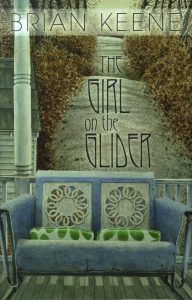
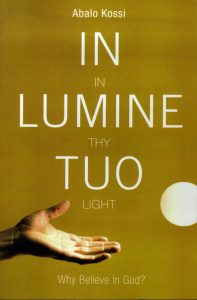 The Girl on the Glider by Brian Keene
The Girl on the Glider by Brian Keene
September 30, 2010
Cemetery Dance Publications, 537 hardcover signed and numbered copies
p78-79, “I’d also become distinctly aware that a number of people who I’d thought were my friends were my friends only because of who I am and not because of who I am. There is a distinction there, and I bet Stephen King, Dean Koontz, or Dick Laymon would have commiserated. But I wasn’t going to ask King and Koontz for advice on shit like that, simply because I know how overwhelming it is when people do it to me. And Dick wasn’t around to ask. I considered trying to contact him via Ouija board or a medium. Ask him for advice on how to deal with all of the users and abusers and hangers-on in my life, and “Hey, Dick, while we’re at it, what can you tell me about the afterlife? Because I’ve got to tell you, my old mentor—I’m fucking scared of dying.”- Orange Coast magazine, October 2010
p12, “Raising a Glass”: “When Marilyn [Hudson, Orange Coast book critic] died, Dean Koontz lauded her ‘social grace’ and Joseph Wambaugh called her ‘irreplaceable.’” - Cemetery Dance #64, 2010
“Bentley Little: A Passion for Horror” by David B. Silva
p7, “When Little was first starting out, back in the late ‘80s. Dean Koontz helped him find an agent. He’s been with Dominick Abel ever since.” 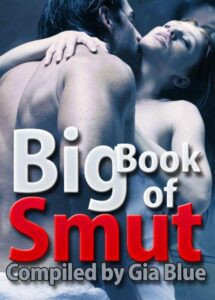
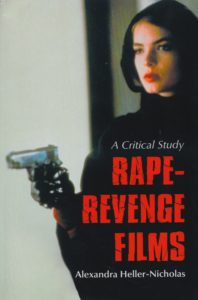 “The Predator” by Marie Shore
“The Predator” by Marie Shore
Big Book of Smut compiled by Gia Blue, Smashwords, 2011
“Her bedroom was the surprise-filled with books. Hundreds of books, hardcopy and paperback, on shelves and stacked on her dresser, the end tables, even the floor. Stephen King, Fred Saberhagen, Dean Koontz, and what looked to be the complete Anne Rice collection, The Vampire Chronicles, The Mayfair Witches, and an autographed framed 8×10 photo of Anne Rice on one wall.”- Jeffrey Jones: A Life In Art
January 4/March 15, 2011, IDW, Released in both an unsigned (978-1-60010-737-5) and signed (978-1-60010-738-2) edition
p194: Cover of Dark of the Woods, titled “Light” and dated 1970. - Borders Bookstore bookmark
February 2011
Free bookmark offered in stores advertising their eReaders and eBooks which features the cover of What the Night Knows. - Deformed and Destructive Beings: The Purpose of Horror Films by George Ochoa
McFarland – March 2011
p166: “Occasionally a nonhuman thing produced by human hands takes on deformed- destructive life, and then it falls into the category of DDBs that are artifacts. These may take the form of a menacing computer, as in Demon Seed (1977), or of something lower- tech, such as Chucky, the doll animated by the spirit of a dead murderer in Child’s Play.” - Nightmare Movies: Horror on Screen Since the 1960s by Kim Newman
April 2011
p391, “Even Dimension’s marketing set a trend: for a while, the standard horror film poster pasted up brooding head-shots of pretty youngsters with youth-appeal TV shows or indie movies on their CVs. Joe Chappelle’s Phantoms (1998), a Dimension movie based on a Dean R. Koontz novel, has a Scream-alike poster, with Ben Affleck, Rose McGowan, Joanna Going and Liev Schreiber staring sexily from the darkness; the biggest name in the cast (wrinkly old Peter O’Toole) is nowhere to be seen, and there’s no indication the film features tentacular cosmic horror rather than wry slashing.” - Rape-Revenge Films: A Critical Study by Alexandra Heller-Nicholas
April 11, 2011
p68: “Science Fiction movies such as Douglas Cammell’s Demon Seed (1977), Inseminoid (Norman J. Warren, 1981) and Breeders (Tim Kincaid, 1986) are all based around sexual violence…” 

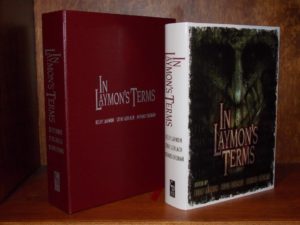 In Laymon’s Terms edited by Kelly Laymon, Steve Gerlach & Richard Chizmar
In Laymon’s Terms edited by Kelly Laymon, Steve Gerlach & Richard Chizmar
June 28, 2011
Released in both trade and Signed & Slipcased limited editions, along with an Advanced Uncorrected Proof.
p309: Two photos captioned “Dick, Kelly & the Koontz’s at Universal Studios”
p318: Two photos captioned “Best Man at Gary Brandner’s Wedding” in which the second photo also includes Dean.- The Creature From the Black Lagoon by Vargo Ststten
December 1, 2011 – Dreamhaven Books
pix-x: “Many well-known writers have authored movie novelizations at least once in their careers—Louis L’Amour (How the West Was Won)… Dean R. Koontz (The Funhouse), and so on.” - What if “Star Wars: Episode I” Was Good? (Belated Media), February 23, 2012
Original URL: http://www.youtube.com/watch?v=VgICnbC2-_Y
At 4:07 of the video there is a still image of Obi Wan Kenobi and Queen Amidala with the title “Beauty & The Beard by Dean Koontz”. - Rue Morgue, July 2012
p1: Full-page ad for FEARnet featuring Jeff Goldblum from the film version of Hideaway among other films. - Sky Magazine (Delta Airlines), August 2012
p49: Full page ad for Odd Apocalypse
Also, an Insert between pages 48 & 49 is an ad for the Odd Thomas series including chapter one of Odd Apocalypse. - Book Page, August 2012
Dean is pictured on the cover along with a quote about Odd Apocalypse from The New York Times. On page five there is a review of Odd Apocalypse titled “A Hero Who’s Odd-ly Appealing.” - Alex Cross, Run by James Patterson, February 2013
p97: “inside the cabin was sunny, clean, and basic. There was a knotty pine floor with a farm table made out of the same wood, a small kitchenette, a queen-size bed under the dormered window. A bookshelf in the corner has a couple of games and some discarded paperbacks – Dean Koontz, Patricia Cornwell, Steig Larson. Nothing to indicate what might have actually happened here.” 

 The Right Kind of Wrong (film)
The Right Kind of Wrong (film)
Released February 6, 2013
During a short scene near the beginning of the film two children are seen reading. One is reading Intensity, the other is reading Relentless. See this blog post for images & video.- Wondercon 2013 Program, March 2013
p6: A photo and brief biography of Dean under the heading of “Wondercon Anaheim 2013 Special Guests” - Dangers to the Faith: Recognizing Catholicism’s 21st Century Opponents by Al Kresta
Our Sunday Visitor, May 31, 2013
p180-1 & footnote: “I wonder how many Catholics and other Christians are aware that today’s most popular writer of suspense thrillers, Dean Koontz (b. 1945), is a serious Catholic thinker. He has just recast the Frankenstein story in six best-selling volumes. In another series, he has developed a character, Odd Thomas, a twentysomething fry cook, who lives in a universe which is simultaneously natural, preternatural, and supernatural. Koontz’ novels are often preternatural thrillers in which the moral premise relates to human exceptionalism. 26
“26. For a current example see Dean Koontz, 77 Shadow Street, New York: 2012.”
p265 footnote 10: “10. See The Great Ape Project: Equality Beyond Humanity by Peter Singer & Paola Cavalieri; For a spirited counterpoint, see Peter Geach, Providence and Evil, Cambridge: Cambridge University Press, 1977, pp. 79-80; Also, Peter Geach, The Virtues, Cambridge: Cambridge University Press, 1977, p. 19. Christian animal welfare perspectives include Matthew Scully’s Dominion: The Power of Man, the Suffering of Animals, and the Call to Mercy, 2003 and Andrew Linzey’s, Animal Gospel, 1999. British philosopher John Gray’s Straw Dogs: Thoughts on Humans and Other Animals accuses liberal humanism’s high view of the person and faith in progress of little more than Christian heresy. “The irony of evangelical Darwinism is that it uses science to support a view of humanity that comes from religion…. A truly naturalistic view of the world leaves no room for secular hope…The idea of progress is a secular version of the Christian belief in providence. That is why among the ancient pagans it is unknown” (p. xii, xii). For an antidote to Singer and Gray both, enjoy the fiction of Dean Koontz and activist Wesley J. Smith’s, A Rat is a Pig is a Dog is a Boy, New York: Encounter Books, 2010. Smith blogs at http://www.nationalreview. com/human-exceptionalism.  “Rick McCammon, A True Southern Gentleman” by Joe R. Lansdale, June 2013
“Rick McCammon, A True Southern Gentleman” by Joe R. Lansdale, June 2013
Bram Stoker Awards® Weekend/World Horror Convention 2013 Souvenir Book
“Later Dean Koontz arrived with an army to assist us, but that’s another story.”
Reprinted @ http://www.robertmccammon.com/rick-mccammon-a-true-southern-gentleman/- Writing a Killer Thriller: An Editor’s Guide to Writing Compelling Fiction by Jodie Renner, June 17, 2013
p7: “My favorite thriller writers these days include bestselling authors… Dean Koontz…”
p43: Brief quote from Darkfall
p162: “A sampling of authors of horror thrillers: …Dean Koontz…”
p166: “Paranormal or supernatural thrillers: …Many of Dean Koontz’s novels, like his Odd series”
p177: “Resources for Crime Fiction Writers – Craft-of-Writing Guides… Koontz, Dean, How to Write Bestselling Fiction”
p183: “Some of Jodie’s favorite authors include… Dean Koontz…” - “Stephen King’s Family Business” by Susan Dominus
New York Times Magazine, July 31, 2013
Original URL: http://www.nytimes.com/2013/08/04/magazine/stephen-kings-family-business.html
“I read you that stupid book, that Dean Koontz book,” said Owen King, who is 36 and the youngest of the three children.
“Watch it!” interrupted his father, but Owen, seated across the table from his father, kept going: “The one where the dog is a genius, and he talks to him by pointing at Scrabble pieces with his nose.”
“Hey, I liked that book,” Joe said.
“I loved that book,” their father said. - Doctor Sleep by Stephen King, September 24, 2013
p183-184: “Just as Lucy was deciding she’d have to settle for an old Dean Koontz and a slightly newer Lisa Gardner , Abra came running over to her.”  The Everything Store: Jeff Bezos and the Age of Amazon by Brad Stone
The Everything Store: Jeff Bezos and the Age of Amazon by Brad Stone
Little, Brown and Company, October 15, 2013
Chapter 9: “In the e-commerce equivalent of a preemptive military strike, Walmart then lowered prices on ten new books by high-profile authors, such as Stephen King and Dean Koontz, to ten dollars each. Amazon matched the price on those same books within a few hours. Walmart.com then lowered its prices again, to nine dollars, and Amazon matched it again. It was just the kind of price pressure from Walmart that Amazon executives had always worried about—but it came ten years too late to do Amazon any harm. Now Amazon was large enough that it could easily withstand such losses.”- Science Fiction and Fantasy Films of the 1970s by John Kenneth Muir (eBook), October 25, 2013
p54 (approx.): “Demon Seed (1977), based on another best-seller, this one from Dean Koontz, explored a super-computer’s attempts to mate with a human female, played by Julie Christie, and the ethics behind his capture and rape of the woman. The computer in the film, named Proteus (and voiced by Robert Vaughn) was insightful enough to realize that man could not survive the rape of the Earth (via under-sea mining that he refused to condone), but not enough to recognize his deliberate violation of a sentient, independent being. The film deliberately explored a woman’s right to choose how her body was to be used.”
p773-780 (approx..): These pages all pertain to the film version of Demon Seed. Included are a photo of Julie Christie from the film, quoted from contemporaneous reviews, cast and crew details, story synopsis, and a review by the book’s author. - “The Casket Letters: The Gothic Year and a Half in Review” by Daniel Olson
Weird Fiction Review #4, November, 2013
p254: “If after the first chapter of the latest from Laurell K/ Hamilton, Charlaine Harris, Stephanie Meyer, E.L. James, James Patterson and Dean Koontz, you are still frightened mostly by the dull metaphors, stilted dialogue, flat scenery, and recycled characters, then take the book back.” - Vortex by Ray Garton
Cemetery Dance, January 2014
p55: “But she really wanted to get back to the new Dean Koontz thriller she was reading, which would only keep her awake.” 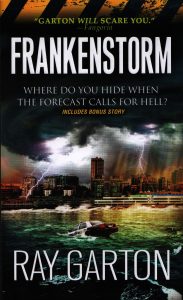 Frankenstorm by Ray Garton
Frankenstorm by Ray Garton
Pinnacle, May 6, 2014
Inside back cover: “Ray Garton is best known for his work in horror fiction and suspense. He has written over sixty books, and in 2006 was presented with the World Horror Convention Grand Master Award, joining past winners Stephen King, Dean Koontz, Clive Barker, Anne Rice, Richard Matheson, Peter Straub, Robert Bloch, and Ray Bradbury…”- “Mind and Matter” by Kim Newman
July 21, 2014
As the liner notes to the Criterion Collection Blu-ray edition of David Cronenberg’s Scanners
“Like 2001: A Space Odyssey (1968), The Final Program (1973), Demon Seed (1977), Apocalypse Now (1979), Blade Runner (1982), and Brainstorm (1983), [Scanners] embraces the Transformative as well as the apocalyptic potential of the creation of a new stage of human life.” - “Whispers Press: An Interview and a Reminiscence” by Wayne Edwards
Weird Fiction Review #5 – Fall 2014
p111: “I asked if there were any writers [David] Schiff wished he had been able to publish in Whispers or through Whispers Press with whom he did not get a chance to work. ‘If I think of writers who were working the field when I was publishing, Dean Koontz (with whom I might have done a book project)…’” 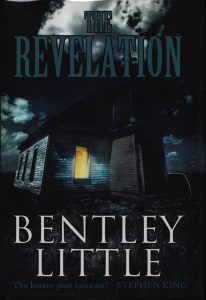
 The War on Humans by Wesley J. Smith
The War on Humans by Wesley J. Smith
Discovery Institute Press – November 2, 2014
Dedication: “To Dean and Gerda Koontz, exceptional humans and cherished friends.”- The Revelation by Bentley Little
Cemetery Dance Publications – November 30, 2014
Dedication page: “Special thanks to:… Dean Koontz, an influence who became a friend and ally, for teaching me the ropes and treating me as though I was somebody—when I wasn’t.” - Fangoria Cover to Cover Edited by Anthony Timpone
Cemetery Dance Publications – December 2014
p38: “Fangoria #182 (May 1999) … Dean Koontz on film adaptations of his novels: ‘I was so sick of seeing bad movies based on my books that I told my agent I was never again selling film rights.’”
Fangoria covers featuring mentions of Dean Koontz and/or his work are on pages 159 (#105, Servants of Twilight film), 195 (#141, Hideaway film), 236 (#182, Dean Koontz: Why my movies stink), and 248 (#194, Sole Survivor mini-series). - The Rats by James Herbert
Centipede Press – March 2015
Introduction by Stephen Jones, p14-15: “While the Guardian’s guide to ‘1989’s Top-Selling Softbacks in Britain’ shows that he was still the UK’s best-selling horror author, regularly outselling such genre rivals as Stephen King, Dean R. Koontz, Clive Barker and Ramsey Campbell.” 
 Christian Horror: On the Compatibility of a Biblical Worldview and the Horror Genre by Mike Duran
Christian Horror: On the Compatibility of a Biblical Worldview and the Horror Genre by Mike Duran
Blue Crescent Press – May 9, 2015
p63-64 contains an excerpt of an interview with the National Catholic Register titled “Chatting with Dean Koontz about Faith” from 2007 at http://www.ncregister.com/site/article/chatting_with_koontz_about_faith- Heroes Reborn: Brave New World/Odessa
Television – September 24, 2015
In the first double-episode, at approximately 1:09:55, the character Noah Bennet approaches a bookcase looking for a particular book to open a secret door. Titles on the shelves include The Funhouse, The Face, and The Darkest Evening of the Year. - Fangoria #343, October 2015
“The Novelized Approach” by Michael Gingold p68-70: Contains a brief mention and the cover image of The Funhouse by Owen West. - Book Pages, November 2015
p22-23: Two-page ad for Ashley Bell - Book Pages, December 2015
Cover: Ashley Bell cover
p22-23: Two-page ad for Ashley Bell - Texas Monthly, February 2016
“Darkness on the Edge of Town” by Eric Benson, and article about author Joe R. Lansdale
p143: “The only thing more certain than Lansdale’s eventual fame is tomorrow’s sunrise,” the best-selling horror writer Dean Koontz wrote in 1989. “I suspect, however, that he is going to be one of those writers who takes a long time to build, who has to find his own readership with little assistance from his publishers. Koontz’s words proved prophetic. Over the past three decades, Lansdale has battled his way through the book industry.” - Cemetery Dance #73, Spring 2016
“The Rise of Modern Horror Fiction: Fear and the Occult in the 1970s” by Christopher Fulbright
p41: “Karl Edward Wagner turned his focus from fantasy to horror, eventually becoming editor of DAW’s annual Year’s Best Horror anthology. Dean Koontz turned his eye from science fiction to suspense. Charles L. Grant did likewise, focusing not only on writing significant novels of quiet horror, but opening the door to the mass market for great short horror stories with his Shadows series.” 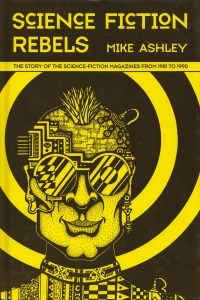 Science Fiction Rebels by Mike Ashley
Science Fiction Rebels by Mike Ashley
Liverpool University Press, July 2016
px: “Moreover, the 1970s saw a resurgence of interest in horror fiction, thanks to the success of Stephen King, Dean R. Koontz, James Herbert and others. Much of what was classified as ‘horror’ was based on science-fiction ideas and plots, but with a new visceral treatment. Magazines began to appear that continued to run a fair quota of science fiction but which were marketed as horror.”
p92: “The late 1970s and early 1980s had seen a huge upsurge in interest in horror fiction, thanks primarily to the success of Stephen King and those who soon followed, notably Dean R. Koontz, James Herbert, Robert R. McCammon. Peter Straub and Clive Barker. Quite often the basis of their horror fiction was some aspect of scientific extrapolation or alternative science (as in psi powers, the basis of King’s first successful novel Carrie), and even traditional stories of werewolves and vampires might receive a scientific rationale. So while these works were marketed as horror fiction, they were often science fiction. Science fiction that was written to evoke horror came to be called, by some, ‘dark sf’ or ‘dark fantasy’. Stories of mutants, post- apocalyptic horrors and alien abduction, just to cite three examples, would all be science fiction, but in the 1980s their marketing label shifted to horror fiction because it sold more books. The same happened with magazines, and a number that are generally grouped with horror fiction in fact ran quite a high proportion of science fiction.”
p99: “[Night Cry] attracted contributions by many leading writers including Robert Bloch, Ramsey Campbell, Orson Scott Card, Avram Davidson, Thomas M. Disch, Dean R. Koontz, William F. Nolan, Ray Russell, Robert Sheckley…”
p105: “Twilight Zone helped cater for a new generation of writers and their work became evident in the next generation of magazines. Paramount among these was The Horror Show produced by David B. Silva. Joe R. Lansdale called it ‘the Whispers and Weirdbook of the eighties’. It had started as a hobby, with the first issue in November 1982, and almost stopped after its second issue, dated Winter 1983, but a notice in Writer’s Digest brought in a wealth of manuscripts and Silva suddenly realized the magazine had more potential. It never reached a fully professional status but sales increased dramatically. It became a paying market and achieved newsstand distribution, switching to high-quality printing and colour covers with its special Dean R. Koontz issue in Summer 1986. In addition to Koontz, it gained the support of Dennis Etchison, William F. Nolan and Robert R. McCammon. Silva managed to keep it on a quarterly schedule, with just the occasional hiccup, from Summer 1983 to Summer 1989, ending on a double issue in Spring 1990.”- Richard Laymon’s Night Show Definitive Special Edition by Richard Laymon
Dark Regions Press – August 2016
Afterword by Steve Gerlach p212: “[Hodder Headline’s] stable of horror authors read like a who’s who of Horror Royalty: Ketchum, King, Koontz, Laymon, Little… to name just a handful.” 
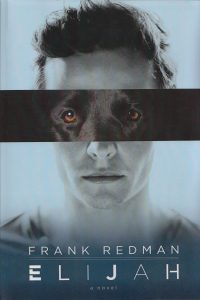 Elijah by Frank Redman
Elijah by Frank Redman
Inspire Publishing, LLC – August 12, 2016
p271: A Note From the Author – “I started writing the suspense novel, ELIJAH, in 2012 after my mentor, Dean Koontz, instructed me to bury my first novel in an unmarked grave somewhere in Antarctica where even the penguins couldn’t read it.”
Saint Odd is Frank Redman.- The Bestseller Code: Anatomy of the Blockbuster Novel by Jodie Archer & Matthew L. Jockers
St. Martin’s Press – September 20, 2016
p29: “Almost all the writing guides we know—and we have most enjoyed the ones by blockbuster authors like Dean Koontz and Stephen King—offer wisdom on aspects of prose such as style, character, and plot.”
p72: “Top ten books with dogs… 7. Dean Koontz, Dragon Tears“”
p203-4: “100 novels our computer things you should read… 67. Dean Koontz, The Darkest Evening of the Year” - Peter O’Toole: The Definitive Biography by Robert Sellers
St. martin’s Press – November 1, 2016
p312-313: “O’Toole flew next to American to make Phantoms, a sci-fi/horror movie, a genre he’d never tackled before, which was part of the reason for taking it on. Director Joe Chappelle’s first contact with O’Toole was in a conference call that also included the producers and Dean Koontz, who’d written the script based on his own novel. ‘Over similar calls I’ve had with actors subsequently over the years, they all want to give notes and have changes made, some quite major. Not so with Peter. He did not was any changes. For him, the concept of pink pages [i.e., script revisions] was “daft”.’ For much of his career, O’Toole saw himself, the actor, as the author’s advocate.” 

 Fab 40: Noteworthy Connections, From the arts to science – people from the Johnstown [County, PA] region who made their mark by The Tribune-Democrat and Johnstown Magazine
Fab 40: Noteworthy Connections, From the arts to science – people from the Johnstown [County, PA] region who made their mark by The Tribune-Democrat and Johnstown Magazine
November 2016, ISBN: 978-1-68418-877-2, Cover Price: $9.95
p28 features Dean.- Myopia Special #1 by Richard Dent, Illustrated by Cezar Razek
November 2, 2016 – Dynamite comics
Copyright page: “Special thanks to Dean Koontz…”
Dean was a supporter of the original Kickstarter campaign for this Comic. Original URL: https://www.kickstarter.com/projects/1182676923/myopia - A Lit Fuse: The Provocative Life of Harlan Ellison by Nat Segaloff
NESFA Press – July 2017
p279: “Quoting Dean Koontz [J. Michael[ Straczynski adds, ‘once poor, never rich.’” - Paperbacks From Hell by Grady Hendrix
Quirk Books – September 19, 2017
p107: Cover of the paperback edition of The Architecture of Fear
p138: “Ramsey Campbell, Peter Straub, John Saul, Dean Koontz, and John Farris bounced up and down the best-seller lists, earning much of their profit from paperback sales.”
p173: “Influenced by Dean Koontz and Stephen King, [Ehren M. Ehly] abandoned plans to write romance novels and sold four horror novels in quick succession to Leisure.”
p180: Cover of paperback edition of The Shaman by Frank Coffey featuring a blurb from Dean.
p187: Cover of paperback edition of Carrion Comfort by Dan Simmons featuring a blurb from Dean.
Rear flap: Cover of paperback edition of Shadowfires by Leigh Nichols. - Sleeping Beauties by Stephen King & Owen King
Scribner – September 26, 2017
p135: “She went into the Olympia. The place was nearly deserted, both waitresses sitting at a corner booth, gossiping. One of them saw Lila and started to get up, but Lila waived her back. Guss Vereen, the owner, was planted on a stool by the case register, reading a Dean Koontz paperback. Behind him was a small TV with the sound muted. Across the bottom of the screen ran a crawl reading AURORA CRISIS DEEPENS.
“I read that one,” Lila said, tapping his book. “The dog communicates using Scrabble tiles.”
“Now you gone and spalled it fur me,” Gus said. His accent was as thick as red-eye gravy.” - Julia by Peter Straub
Centipede Press – October 2017
Reprint of 1997 “An Interview with Peter Straub” by Darrell Schweitzer
p298: “Q: In essence you’ve become a brand name. A: Dean Koontz is a brand name. I was sort of Dean Koontz once.” - Brian Keene’s History of Horror Fiction: Chapter One: Not the Man for the Job
Cemetery Dance Online – October 31, 2017
Original URL: http://www.cemeterydance.com/extras/history-horror-fiction-one-not-man-job/
“Growing up in the late Seventies and early Eighties, my generation was introduced to horror fiction in one of two ways: kid’s books (John Bellairs was our J. K. Rowling) or comic books (Man-Thing, Weird War, House of Mystery, Werewolf By Night, The Occult Files of Doctor Spektor, etc.). From these, we graduated to Stephen King and Dean Koontz. It was King’s masterful history of the horror genre, Danse Macabre, which introduced most of us to H. P. Lovecraft, Richard Matheson, and others who’d come before him, and it was the delay between King and Koontz titles that allowed us to discover (in our late teens and as young adults) Richard Laymon, Jack Ketchum, Joe R. Lansdale, Graham Masterton, the Splatterpunks, and many others.” - “Weird Erotica in the Age of Essex” by Adam Groves
Weird Fiction Review #8 edited by S.T. Joshi
Centipede Press – January 2018
p29: “A more blatant depiction of sex and technology appeared in the form of Demon Seed (1973) by Dean Koontz, about an all-powerful computer’s deeply perverse relationship with its attractive woman owner (a perversity neutered entirely in the novel’s 1997 revision). Had it appeared a few years earlier, it would have also made for ideal Essex material.” - Brave by Rose McGowan
Harper One – January 30, 2018
p114: “In 1997 I had started doing another movie, Phantoms, made by the
same studio that did Scream, Miramax.”
p115: I was currently starring with Ben Affleck, Phantoms.”
p123-4: “I immediately get taken to a photo op with my costar for Phantoms.”
p127: “Traumatically, I had to go back to work and finish Phantoms as I was in the middle of filming when I fatefully went to Sundance.”
Also: Brief images from the film Phantoms also appear in episode one of Brave’s associated television show Citizen Rose. 

 Pieces of Her by Karin Slaughter
Pieces of Her by Karin Slaughter
August 21, 2018, William Morrow, p117
“Andy searched for Paula Koontz Austin TX.
Nothing Austin-specific came back, but apparently, Paula Koontz was a popular name for real estate agents in the northeast.
‘Koontz,’ Andy whispered the word aloud. It didn’t sound right to her ears. She had been thinking more like Dean Koontz when Hoodie had said it more like ‘koontz-ah.’
She tried koontze, koontzee, khoontzah . . .
Google asked: do you mean koontah?”
Thanks to Stuart Lilley for this find.- Randy: The Full and Complete Unedited Biography and Memoir of the Amazing Life and Times of Randy S.!September 11, 2018
p22: ‘Randy stops talking and practically slaps his forehead. “Whoa! I just had another idea for a syndicated comic. It just came to me! I would absolutely love to do a strip on Ayn Rand’s writings. I love her. I’ve never read any of her books but I do love her. I agree on a lot. Can you write that down? My hands are wet. Yeah, that could work. I also love Dean Koontz. I own all his books. They’re in alphabetical order in my living room. What else? Maybe something about Jim Jones. I’m fascinated by that guy’s story. All that power.”‘
(Vice article about this book.) - “Amazing by Moonlight” by Joseph Wrzos
Weird Fiction Review #9, Fall 2018
p94: “To have been instrumental in seeing to it that both Amazing (and her companion magazine, Fantastic) reprinted not only some quality sf/fantasy stories from the past but also published quite a bit of worthy “new” fiction by luminaries like Edmond Hamilton, Will F. Jenkins (better known as “Murray Leinster”), Jack Vance and Arthur C. Clarke, as well as by newer talents (at that time) like Roger Zelazny, Dean Koontz, Frank Herbert, and “Cordwainer Smith” (pseudonym of the late Paul Myron Anthony Linebarger.).” - Save the Cat! Writes a Novel: The Last Book On Novel Writing You’ll Ever Need by Jessica Brody
Ten Speed Press, October 9, 2018
Chapter 13: “Stephen King and Dean Koontz have both made a “killing” in this genre. From The Shining, Salem’s Lot, It, and Pet Sematary by King to Watchers, Midnight, and Hideaway by Koontz, many a classic novel by these two falls into this category.” 

 Cemetery Dance Magazine Index (Issues 1-75) by Michael P. Sauers
Cemetery Dance Magazine Index (Issues 1-75) by Michael P. Sauers
Cemetery Dance Publications, December 31, 2018
Dean’s main entry can be found on page 182.- The Astounding Illustrated History of Fantasy & Horror, Consultant Editor S.T. Joshi
Flame Tree Publishing, 2018
p125: “The Dean R. Koontz conveyor belt was trundling along with no less than 17 novels in the decade.” [the 1980s] - “Editor’s Note: By the Book” by Andy Olsen
Christianity Today, January/February 2019
p7: “I came to the life of books as a teen by way of Michael Crichton and a beloved English teacher reading her seventh-graders snatches of Dean Koontz—not gateways I recommend for malleable young consciences, but they were on a ladder that eventually led me to C.S. Lewis and Dallas Willard and other esteemed CT honorees.”
Also published online under the title “Our Jan/Feb Issue: What Are Book Awards Good For?” @
https://www.christianitytoday.com/ct/2019/january-february/our-janfeb-issue-what-are-book-awards-good-for.html 
 Collected Works Volume One by Vanessa Reed
Collected Works Volume One by Vanessa Reed
February 3, 2019
p7 (acknowledgements): “…Stephen King, R.L. Stine, Dean R. Koontz, John Saul, Clive Barker…”- Santa Clarita Diet s03e04: More of a Cat Person
Originally broadcast March 29, 2019 (IMDB)
Around the 3:24 mark a character has a Dean Koontz on a shelf behind him. To me it looks like a copy of Whispers but this is unconfirmed. (Click image for full resolution.) 
 Python Crash Course by Alexis Jordan (bootleg edition)
Python Crash Course by Alexis Jordan (bootleg edition)
June 2019
From “What Occurs After Amazon’s Domination Is Entire? Its Book shop Presents Clues” by Viraj Shah (June 24, 2019) in regard to the number of bootleg book being sold on Amazon.com ‘One ebook, moreover known as “Python Rupture Route,” is an thoroughly doubtful effort. On its front quilt is a distorted label appropriated from the respected publisher McGraw Hill but subtly modified to “RcGraw Hill.” The ebook sides a biography of Alexis Jordan, its purported author, on the assist quilt that became stolen from the in style suspense author Dean Koontz. (“His novels are broadly described as suspense thrillers,” and many others.) Internal, there would possibly per chance be a completely a quantity of biography plagiarized from Jürgen Scheible, a German media artist.’
I was able to purchase a print copy of this book which was removed from Amazon by the time my copy arrived on June 27. (Click on the image of the back cover for a larger version.)- Becoming Superman: My Journey From Poverty to Hollywood by J. Michael Straczynski

 Harper Voyager, July 23, 2019
Harper Voyager, July 23, 2019
p273-4: “…but over the course of 360 broadcasts [OF Hour 25] we interviewed such luminaries as William Gibson, Ray Bradbury,… Dean Koontz,… and Norman Spinrad.” - Suspense Magazine Fall 2019
“Author Chris Bauer Shares His Thoughts on Horror/Thriller Fiction”
p22: “W.B.: What author(s) do you most want to emulate?
C.B.: Steve Shilstone (“Chance,” a baseball book); Dean Koontz for his Odd Thomas series, as much or more so than Stephen King; Elmore Leonard for his minimalism; Jonathan Lethem (“Motherless Brooklyn”), Jennifer Hillier (“Jar of Hearts”). All wonderful voices. The thing is, I love using a hard-edged voice for my protagonists, and these writers have done such a great job in creating voices for their characters. Adding to this list, on the strength of one interview I saw in the International Thriller Writers The Big Thrill magazine last year, I want to add Chantelle Aimée Osman, author, and an editor at Agora Books (a Polis Books imprint), who tells it like it is every time I see her quoted somewhere.” 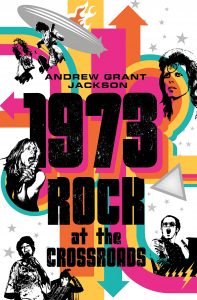

 Catch and Kill: Lies, Spies, and a Conspiracy to Protect Predators by Ronan Farrow
Catch and Kill: Lies, Spies, and a Conspiracy to Protect Predators by Ronan Farrow
Little, Brown and Company (October 15, 2019)
Chapter 7 is titled “PHANTOMS” referring to the film staring Rose McGowan and contains the following quotes:
“She recalled the routine first hour with the man she then considered only her boss, and his praise for her performance in one film he’d produced, Scream, and in another she was still working on, Phantoms.”
“And she remembered her costar in Phantoms, Ben Affleck, seeing her visibly distraught immediately after the incident, and hearing where she’d just come from, and replying, ‘God damn it, I told him to stop doing this.'”- Supernatural (TV Show) Season 15, Episode 5: Proverbs 17:3
Originally broadcast 14 November 2019
Lilith: “God… he’s not exactly Shakespeare. He’s more of a low-rent Dean Koontz.” - The Decline of the Novel by Joseph Bottum
St. Augustine’s Press (December 2, 2019)
p151: “Neil Gaiman is a genius of his kind, exploring genre fiction in childdren’s books, urban fantasy, and graphic novels. Dean Koontz used horror, in ways I suspect much of his enormous audience does not realize, precisely to raise metaphysical questions about the world’s disenchantment. George R.R. Martin’s Game of Thrones success is a model of rich world construction in the post-J.R.R. Tolkien age, while Gene Wolfe used science fiction to undertake a Catholic-tinged literary project for over thirty years.” - 1973: Rock at the Crossroads by Andrew Grant Jackson
Thomas Dunne Books (December 3, 2019)
“Author Dean Koontz riffed off the Rosemary’s Baby premise with his bestselling novel Demon Seed, about a computer that takes a woman hostage and impregnates her, creating a cyborg. But the Dead Heads who worked in Silicon Valley found benign uses for the technology, employing proto-messaging boards to arrange rides to concerts and compile lyrics to Grateful Dead songs, a resource the band itself eventually used. Merry Prankster Stewart Brand, creator of the commune-oriented Whole Earth Catalogue, wrote in Rolling Stone, “Ready or not, computers are coming to the people. That’s good news, maybe the best since psychedelics. Half or more of computer science is heads. The rest of the counterculture is laid low and back these days, showing none of this kind of zeal.” 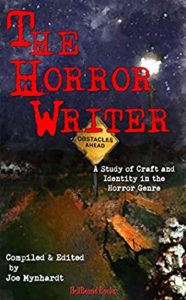

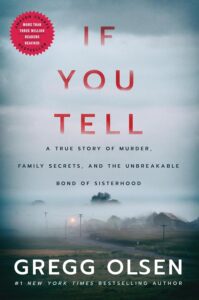 H.P. Lovecraft Against the World, Against Life by Michel Houellebecq
H.P. Lovecraft Against the World, Against Life by Michel Houellebecq
Cernunnos, November 5, 2019
From the introduction “Lovecraft’s Pillow” by Stephen King
p21-22: “For most developing readers, there comes a dangerous “dead spot” between the ages of thirteen and seven teen. It’s that time when most young people put down the books of their childhood but before they pick up those of adulthood. As we know, many children never bridge that gap; when they become adults and we go into their homes, we will be apt to find Reader’s Digest, the National Enquirer, Jokes for the John, and not much else. Some children during that passage of years put down Nancy Drew and R. L. Stine in favor of Agatha Christie, Dean Koontz, perhaps Stoker’s Dracula. They are the ones who will stock their future homes with the current bestsellers of the moment and continue to provide Danielle Steel’s retirement portfolio with fresh stocks.”- If You Tell: A True Story of Murder, Family Secrets, and the Unbreakable Bond of Sisterhood by Gregg Olsen
Thomas & Mercer, December 1, 2019
Chapter 12: “‘That summer I found out how much I loved to read. I read all of the Nancy Drew books that I had, then moved on to my mom’s John Saul and Dean Koontz. She loved horror. She had boxes of paperbacks and I read every one of them.’…”She had been around nurses all her life and had even taken a few courses at Clark College in Vancouver. She’d often talk about her desire to go back to school to get a nursing degree, but she said raising her daughters took precedence over her dreams and ambitions. She kept a stack of medical and first-aid books around the house, and when she wasn’t reading a Stephen King or Dean Koontz novel, Shelly had her nose in one of the medical books.” - The Horror Writer: A Study of Craft and Identity in the Horror Genre compiled and edited by Joe Mynhardt
Hellbound Books, January 2020
p39-40: “I had tried several other horror authors that I found in the UK Borders stores such as James Herbert, Dean Koontz, Stephen King and Anne Rice. I didn’t enjoy any of them near as much as I did Laymon.”  While He Was Sleeping by Chris Johnson, 2020
While He Was Sleeping by Chris Johnson, 2020
p5: “Ella offered me a smile above her paperback, a copy of Dean Koontz’s Phantoms—a choice book, by my opinion. Although she looked equally exhausted, her youthful beauty outshone her apparent worry for her younger brother. Despite that, she remained the most beautiful girl in school to me, even if she was going out with some jerk.”- “The Horror in Novels” by John Coyne
Originally published in the Books of Horror Facebook group @ https://www.facebook.com/groups/526308964218819/permalink/1343691579147216/, February 27, 2020
“By the 1970s traditional horror themes moved into new territory, most famously Stephen King with Carrie and The Shining, and since then more than twenty other novels. Besides King, there were other well known “horror” novelists: Peter Straub, Dean Koontz, Clive Barker, and Ramsey Campbel.
As the genre expanded, and King, Straub, and Dean Koontz published novels eagerly read by young readers, the shelf space for horror novels grew and their books were moved to the front of the stores and displayed in the store windows.
“These novels were basically about good and evil. And, of course, guilt.
“Horror” only works as a theme when we realize that there is something “bad” out there. It might be a supernatural “bad”; it might be a chemical y generated “bad,” but it is certainly “BAD.”
“Dean Koontz called one of his early novels, The Bad Place.
“A “bad” place might at one time have been Poe’s The House of Usher.
“A “bad” place might be the immediate future as in Stephen King’s The Stand, his horrifying world of what is to come. Another classic version of the horrifying future would be Margaret Atwood’s The Handmaid’s Tale, or Dean Koontz’s Watchers.”
…
“Back in 1971, surrounded by the novels of Blatty, King, Straub, and Dean Koontz, and others—without having written a successful book—I had no idea for a horror novel.”
…
“Next, I wrote The Searing, a novel about a woman who has an orgasm caused by a space ship in the outer regions. I thought the future of horror fiction was by combining science fiction and horror, as was successfully by done by Dean Koontz.” 
 Walk the Wire by David Baldacci, April 21, 2020
Walk the Wire by David Baldacci, April 21, 2020
p252: “It was the faded room of a teenager from years ago. Old movie and music posters. Pictures of athletes from fifteen years past. A small gunmetal desk with a dusty PlayStation console and a pair of headphones. Some dog-eared Stephen King and Dean Koontz novels along with books of a technical nature were lined up on a small bookshelf. The bed was a twin and neatly made. The carpet was old and stained.”
Thanks to Jim Dickinson for this find.- Writing in the Dark by Tim Waggoner
Raw God Screaming Press, August 2020
p197: “Branded. Not long ago I was at a con, and I overhead two writer friends talking. One remarked to the other about how well dressed he was that day, and he replied, “A.B.B. Always Be Branding.” He meant it at least partially as a joke, poking fun at business’ gurus near obsession with branding, but there was some truth to his words as well. Years back, I read an article Dean Koontz published in Writer’s Digest in which he said the only thing writers truly have to sell is their unique vision, what makes them them. Back then, branding wasn’t something writers spoke about—at least, not like we do currently—but that’s what Koontz was talking about. And in this day, when thousands upon thousands of traditionally published and indie writers compete for readers, having a strong brand can help you stand out from the crowd and cut through all the marketing white noise that readers are constantly bombarded with.”
p200: “Create a one-sentence tag (or a short phrase) for you and your work. John F.D. Taff labels himself “Modern Horror’s King of Pain.” In a blurb, Richard Laymon referred to Edward Lee as “The Living Legend of Literary Mayhem.” A reviewer on Dayton.com once referred to me as “Stephen King Meets Franz Kafka,” a description I use on my website. Sometimes your most famous (or infamous) work can become your tag, as in “Jack Ketchum, author of The Girl Next Door” or Anne (Interview with the Vampire) Rice. According to reviewers, Dean Koontz writes “edge-of-your seat thrillers.” Author Gary McMahon called Caitlin R. Kiernan “one of the great stylists of horror fiction.” Lucy Taylor has been called “The Queen of Erotic Horror.” If you’re just starting out as a writer and feel uncomfortable calling yourself Master, King, Queen, Legend, etc., I don’t blame you. I’m a midwestern boy, and where I come from, we’re taught that bragging is unseemly. And you’ll probably make yourself look ridiculous claiming your horror royalty right out of the gate. How many new horror writers have come on the scene proclaiming themselves to be “The Next Stephen King,” only to fade away after a short time? But you can start out calling yourself “Author of Erotic Horror” or “Creator of Literary Mayhem” until such time as you feel you’ve earned a loftier title—or better yet, have such a title bestowed on you by someone else.” 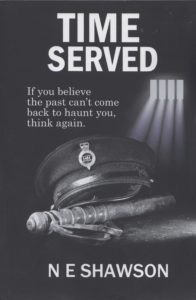
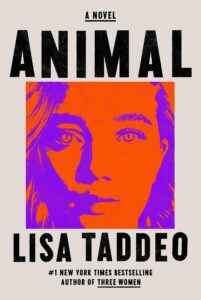
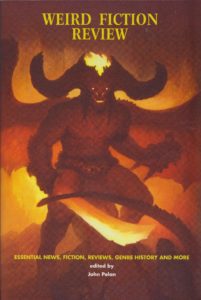 “Shadows, Sadists, and Sandkings: The Modern Tale of Terror, 1967-1997” by Boyd White
“Shadows, Sadists, and Sandkings: The Modern Tale of Terror, 1967-1997” by Boyd White
Weird Fiction Review Number 11, Fall 2020, p48-63
p60: “Like all good things, the renaissance in modern horror finally came to end wit the implosion of the horror fiction publishing boom in the last 1990s as a result of a glutted market and surplus of inferior product. Merely competent writers like Anne Rice and Dean R. Koontz clogged the best-seller lists with endless variants of cliched scenarios while hacks such as Rich Hautala, Andrew Niederman, and J.N. Williamson cranked out forgettable paperback originals as fast as they could type, obscuring the work of superior authors such as Charles L. Grant, Kenneth Greenhall, and Melanie Tem.”- Eli Roth’s History of Horror s03e04: Apocalyptic Horror @ 0:15:41
As part of the episode’s discussion of the film versions of I Am Legend by Richard Matheson, the SF Masterworks edition with Dean’s blurb on the cover is shown. - Time Served by N E Shawson
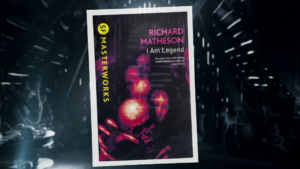 “TIME SERVED | Northern Ireland prison officer’s debut crime novel gets approval from Dean Koontz”
“TIME SERVED | Northern Ireland prison officer’s debut crime novel gets approval from Dean Koontz”
Sunday World, 26 December 2021
“And he revealed the book already has the seal of approval from internationally renowned suspense/thriller writer Dean Koontz.”‘I wrote to him outlining the plot and was surprised to get a reply.
“‘He said the book could have been set in China or Mexico or anywhere and encouraged me to go for it. Who knows, if he reads it he might give Netflix a call for me!'”
[I’ve got to admit this is a stretch as I bet anyone who writes Dean about writing their own novel is going to get encouragement back. I feel like the headline of this article is a bit misleading.” - Animal by Lisa Taddeo
Avid Reader Press, June 8, 2021
Chapter 19: “I bought the book I was reading. All the books I read were hand-me-downs from my parents. My mother’s V.C. Andrews, my father’s Dean Koontz. In this case it was Stephen King’s The Stand. I liked how massive it was, that it would last me a month.: - Suspense Magazine, Winter 2021
Dean gets a thanks from the editor on page 3. 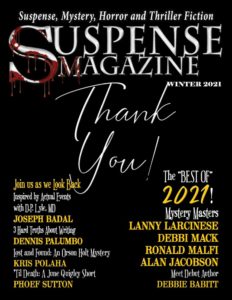

 Acne: A Memoir by Laura Chinn
Acne: A Memoir by Laura Chinn
July 19, 2022
p34-35: “When I was nine, I had far surpassed my brother’s reading level and my mom told me I had to read in the bathroom in secret from then on because she didn’t want Max to see how advanced my books were. He didn’t have to hide his athletic trophies and medals from me, but for some reason I had to hide my talents from him. This all seemed perfectly normal to me, so I started reading my Dean Koontz books while locked in the bathroom.
“Dean Koontz was my absolute favorite author. His dark and terrifying books are recommended to readers who are sixteen and older, but no one told me that. His best book, in my nine-year-old opinion, was Intensity, about a woman named Chyna who watches her best friend get raped and murdered by a serial killer and then exacts her revenge, by lighting him on fire. It was novels like these that were undeniably the inspiration behind one of my finest short stories, Vioant, which I think was supposed to be Violent: …
“The toilet wasn’t the most comfortable place to read, but I didn’t want my brother to find out about my IQ, so I spent hours in the bathroom locked away from his fragile ego, consuming adult horror thrillers and writing Dean Koontz fan fiction. Although, in retrospect, I don’t think his ego was that fragile. I think it was something my parents had convinced themselves of because he was a boy and therefore his self-esteem took precedence over mine, but I think Max and I balanced each other out nicely and we would’ve been fine left to our own devices. We were a team. When we played video games, he held the controller and did all the action while I read the entire game manual cover to cover. Then I would tell him all the secret moves and cheats and together we would win the game. It didn’t particularly bother me that he was an incredible athlete. If anything, I was proud to be related to someone who was that good at everything.”- Advertisement for Observer by Robert Lanza and Nancy Kress
Publishers Weekly, August 1, 2022
“For fans of Neal Stephenson, Andy Weir, Robin Cook, Dean Koontz, Michael Crichton and readers of real science-science fiction.” - “HWA the Karen Lansdale Silver Hammer Award”
Horror Writers Association Special imailer (email)
“The association continued for a time as part of the World Fantasy Convention,
eventually morphing into the World Horror Convention, so as to have its own
platform.
“At some point, Dean Koontz suggested to us that he put some money into the
newsletters, take it over, make it more professional. He did and it did.
“Karen, by this time, long overwhelmed with Xeroxing and organizing, was ready to let it go. Fly little organization, fly out into the world, your mama lets you go.
“So, let it be known, it was she, not Rick, not me, not Dean, who created the
organization which continued to grow and became the Horror Writers Association. It leaped from our kitchen table, where Karen operated, and flew out into the ether to eventually become world-wide. That’s impressive.” - “Taking Another Look at The Watcher” by Reeves Wiedeman
The Cut, October 11, 2022
http://thecut.com/2022/10/the-watcher-657-boulevard-update.html
“Several readers tried to identify a literary inspiration for the letters, and suggested a subpoena of library records to find someone familiar with the work of Shirley Jackson, or the novel Watching You, published just a few months before The Watcher’s letters and narrated by a stalker. (“I am the one who watches.”) One reader saw echoes of Dean Koontz in The Watcher’s “care for language, and in their ultimate effect—the disturbance of the social fabric of an entire town.” As it happens, Koontz published a novel called Watchers in 1989.” - Meaning – origin and history of the name Dean
GB Times, June 9, 2023 (date from HTML source)
Original URL: https://gbtimes.com/meaning-origin-and-history-of-the-name-dean/ - U.F.C. Fighter on How to Protect Yourself from Being Swept Off Your Feet
The New Yorker, April 10, 204
“What’s up, jamokes! It’s Daryl (Death Grip) Daley, the baddest U.F.C. fighter in this goddam town. A little bit about me: I like punching people, and also kicking them. It feels weird being in print, ’cause I’m not a big reader, but I did once smack a guy with a Dean Koontz book.”
Original URL: https://www.newyorker.com/humor/shouts-murmurs/ufc-fighter-on-how-to-protect-yourself-from-being-swept-off-your-feet
